A Canadian asset manager part run
by green finance champion Mark Carney cleared thousands of football fields
worth of tropical forest in Brazil, our investigation can reveal.
An estimated 9,000
hectares of deforestation, the legality of which could not be proven by
Brookfield Asset Management, took place on eight farms owned and managed by
Brookfield’s soybean farming empire. The forest clearance took place in the Cerrado, Brazil’s tropical savannah,
between 2012 and 2021, according to analysis of satellite imagery from Brazil’s
space institute, before the properties were sold off in late 2021 in a slash
and sell move. The empire also owned a farm whose managers sought to evict indigenous
peoples from land they claim their own.
Brookfield’s involvement in
deforestation and human rights abuses contrast with its own environmental,
social and governance (ESG) policy and Mr Carney's public image.
“We operate with the highest
ethical standards, conducting our business with integrity,” Brookfield wrote in
its latest annual report. But Brookfield’s owner-operator-investor model means
it could have profited three times from forest destruction in Brazil - from the
sale of commodities, from the sale of financial instruments derived from these
commodities and from fluctuations in the price of its resale assets such as
farms.
Brookfield and its biggest
banking backers HSBC, Deutsche Bank and Bank of America, signed up to the
Glasgow Financial Alliance for Net Zero (GFANZ) in April 2021. The alliance commits its signatories
to taking immediate action to reach net zero greenhouse gas emissions by 2050.
Yet
deforestation on Brookfield farms released an estimated 600,000 tonnes of CO2 in
the nine years to June 2021, destroying parts of a crucial carbon sink and
biodiversity hotspot. In September, GFANZ leaders, including Mr Carney, wrote to members urging them to stop financing deforestation, warning "the world will not reach net zero by 2050 unless we halt and reverse deforestation within a decade" .
At that point, all GFANZ members were required to follow criteria set by the UN's Race to Zero campaign to "ensure credibility and consistency", including achieving deforestation-free supply chains by 2025. However, in late October 2022, GFANZ announced it was no longer mandatory for its members to adhere to Race to Zero targets. This happened shortly before Race to Zero planned to introduce independent monitoring controls with the power to evict non-performing financial institutions from the alliance, raising questions about the willingness of GFANZ members to be held accountable to their pledges.
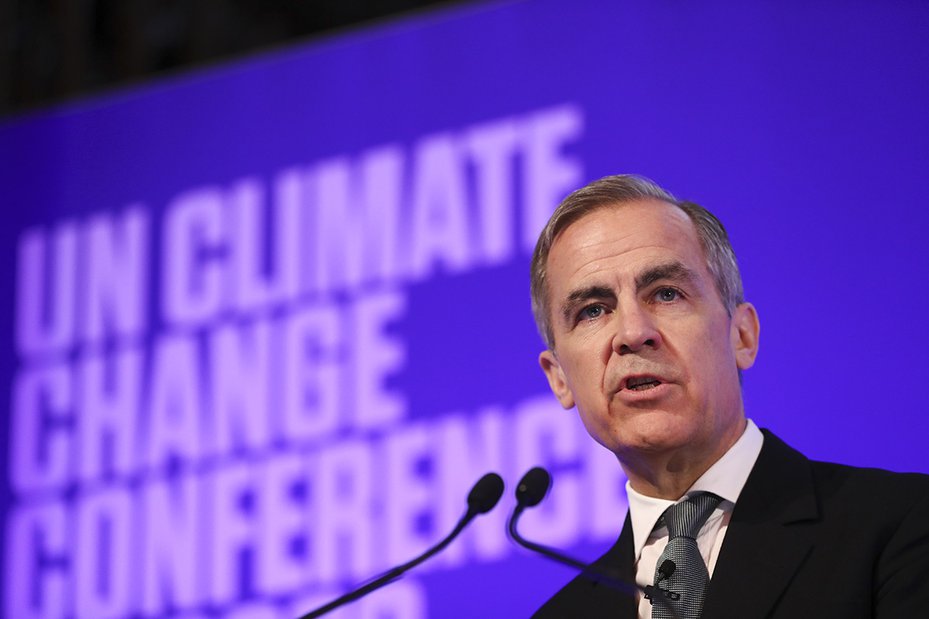
Mark Carney, former governor of the Bank of England, speaks at the launch of the COP26 Private Finance Agenda in 2020 in London, UK. Bloomberg/Getty Images
Mark Carney is one of the founders and public faces of GFANZ, and has been Head of Transition Investing at Brookfield since August 2020. The deforested farms were sold off in 2021 and Carney was promoted from Vice Chair to Chair of the firm in December 2022. Mr Carney was appointed special adviser to then-Prime Minister Boris Johnson for COP26 in January 2020, and he has been a UN Special Envoy on Climate Action and Finance since 2019.
Brookfield faces allegations
of clearing trees from climate-critical forest land to make way for cash crops,
while seeking to evict indigenous people from the heart of the Amazon to make
way for cattle and mining opportunities. A ranch which Brookfield attempted to
sell in January 2022, after the asset was frozen by a local court, battled for
years to evict an endangered indigenous community from their ancestral land.
And in another alleged human rights abuse, a firm controlled by Brookfield was
fined R$800,000 ($163,000) in December 2021 for slave labour offences at a
different farm.
Brookfield’s deforested farms were controlled through a
network of investment funds and subsidiaries linked to the asset manager’s
entities based in Toronto, Bermuda and London, some of which were sold off in
2021. Some of the soy produced in the properties that contained deforestation
were sold to the controversial commodity trader Cargill, a company exposed
many times
for its links to forest clearance, and subsequently could have found its way
into British supermarket chicken.
At
least two British financial institutions, the Lancashire County Council Pension
Fund and the London Pension Funds Authority, have invested directly in
Brookfield’s Brazilian agricultural fund.
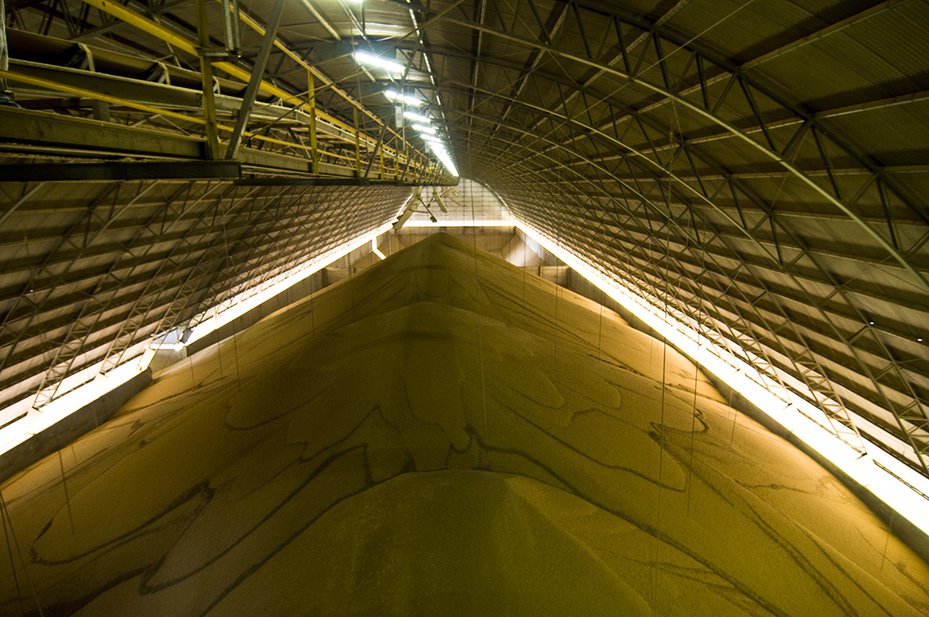
Soy warehouse in Mato Grosso state, Brazil. Brazil is the second largest soy producer worldwide. Paulo Fridman/Corbis via Getty Images
Brookfield’s “slash and sell”
tactics should not absolve it from responsibility for the environmental abuses
committed on its farms. Its ability to
cash in on deforestation underlines the need for governments to legislate to
stop the financing of forest destruction, rather than relying on voluntary net
zero initiatives such as GFANZ.
In response to these
allegations the company said it “unequivocally refute[s] the specific allegations made by Global Witness
– Brookfield has always acted in accordance with all applicable laws and
regulations. Brookfield is committed to the highest standards of ethical
behaviour across all our global investments, and we move quickly to address
issues when they arise.
"We have been invested in Brazil for over one hundred
years and we have been proud to support the country build and operate vital
infrastructure. While we are no longer
active in farming, timber or mining in Brazil, we continue to operate assets in
a range of sectors and we look forward to continuing supporting the country on
its development towards a Net Zero and thriving economy.”
Brookfield Asset Management
(BAM) indirectly controlled each farm named in this report, through Brazilian
investment funds and subsidiary companies. Where the name “Brookfield” is used
in the report this refers either to the Toronto headquartered BAM, to the Rio
de Janeiro-headquartered company Brookfield Brasil Ltda, which BAM held a
majority stake in via Brookfield Participacoes and Brkb Participacoes II, or to
Brookfield Agricultural Group, the brand name used by Brookfield Brasil in some
cases. The relationships between firms
in the Brookfield corporate umbrella named in this report is detailed in Annexe
C (please see the PDF version of the report for details).
Early one October morning,
trustees of a San Diego pension fund gathered at their headquarters on the
outskirts of town to hear a pitch for an investment with an unusually high rate
of return: 20 to 25%. It was 2010, and the directors of Brookfield Agriculture
Group and Brookfield Brazil were cycling through a PowerPoint presentation
outlining how Brazilian cash crops could help grow the pension savings of San
Diego county’s teachers and civil servants.
It took them just over an hour to
convince the San Diego County Employees Retirement Association to invest $75
million in the Brookfield Brazil Agriland fund, more than a fifth of the fund’s
final value.
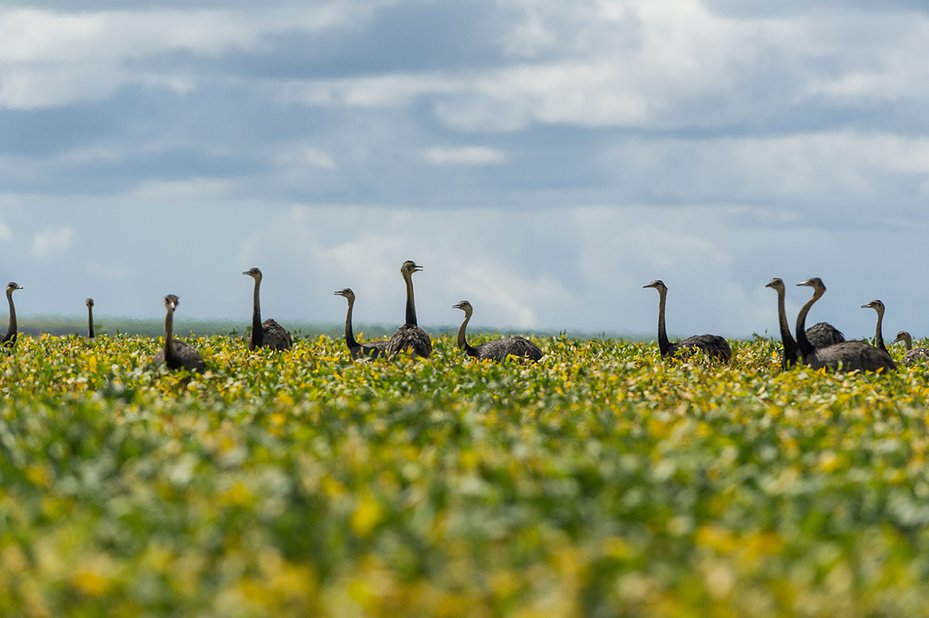
A flock of rheas is seen in a soybean field in the Cerrado plains near Campo Verde, Mato Grosso state, western Brazil. YASUYOSHI CHIBA/AFP via Getty Images
While Brazil’s recession of 2008
had led to banks foreclosing on farming estates and driven land prices down,
global demand for soybeans was rising fast, Brookfield directors said in their
presentation to the San Diego Pension Fund.
A boom in commodities like soy,
corn, sugar, livestock and timber meant alternative asset managers could earn
money both by selling these goods and by speculating on land prices. Crops
planted in the biodiverse Cerrado tropical savannah region would be
particularly lucrative investments.
Brookfield would acquire nearly
100,000 hectares (ha) of farmland through this fund over the next three years,
including at least five of the eight farms where we have identified
forest subsequently being destroyed to make way for crops, the legality of which
state authorities and Brookfield could not verify.
Brookfield told the San Diego
trustees who invested in its first Agriland fund that it was “a leader in
environmental stewardship.” Others eventually invested in this fund too,
including the Lancashire County Council Pension Fund and the London Pension
Funds Authority in the UK, according to data shared by the Anti-Corruption Data
Collective, potentially exposing council staff in the UK to deforestation
linked to Brookfield’s properties.
Agriland’s larger successor,
Agriland II, which San Diego pensioners also invested in, allowed Brookfield to
further expand its agricultural holdings after 2016.
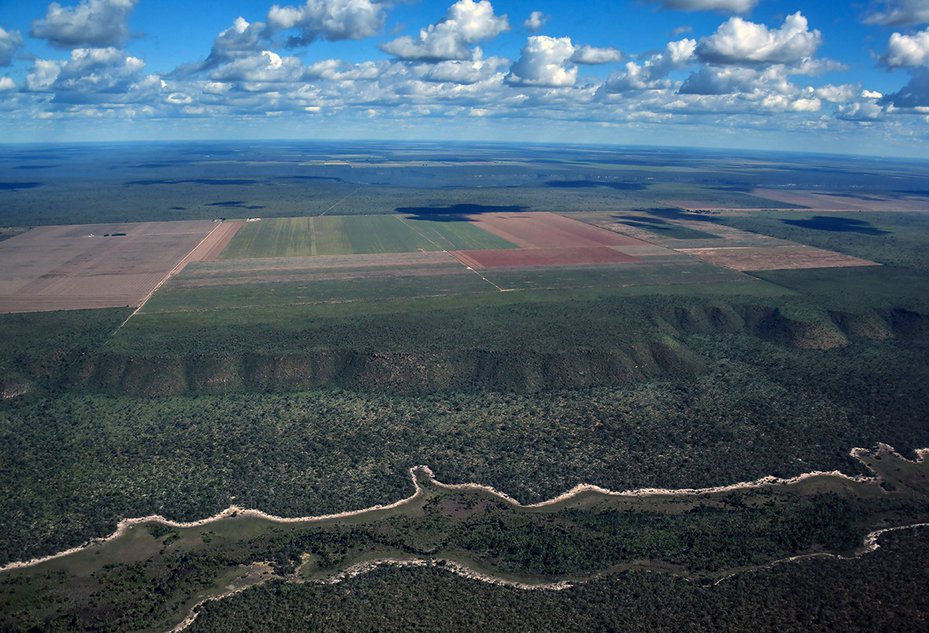
Aerial view showing a native Cerrado (savanna) surrounding an agriculture field in western Bahia state. NELSON ALMEIDA/AFP via Getty Images
Brookfield first entered Brazil
in 1899 as the owner of a small private utility company and built São Paulo’s
first electric trams and first streetlights. It now holds immense energy,
infrastructure and agricultural holdings in Brazil – from natural gas pipelines
to hydroelectric and nuclear power plants, shopping malls, railways and a vast
network of farms.
By the end of 2020 it had nearly
doubled its agricultural land holdings to 267,000 hectares dedicated to
soybean, sugar, rubber, corn and cattle across 22 farms in seven states
compared to just 150,000 hectares of agricultural land a decade earlier, selling
14,500 heads of cattle a year. Its timber plantations spanned a further
275,000 hectares, and it sold more than three million cubic meters of logs and 16,200
tons of charcoal, according to its latest annual report.
Brookfield’s Brazilian assets were worth $22
billion in 2021 - including R$8 billion ($1.6 billion) in forestry and
agricultural assets - out of $391 billion in global consolidated assets.
Satellite evidence
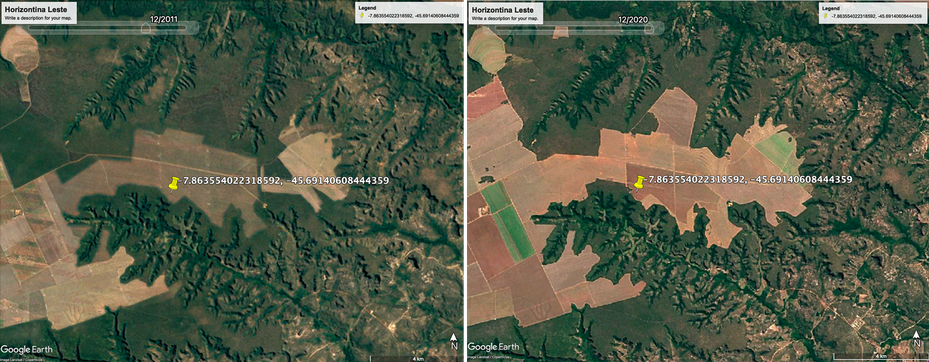
Left: East side of Horizontina Leste farm, December 2011, shortly before purchase by Brookfield. Right: East side of Horizontina Leste farm, December 2020, shortly before being sold by Brookfield. Both images from Google Earth
From the air, green tufts of
soybean form dark geometrical shapes in otherwise bald patches of tropical
savannah. The boundaries between forest and cleared land on Brookfield farms
are so straight they could only be human-made. Zoom in closer, and satellite images of giant steel silos appear to confirm
this. Once harvested, the crop could be used as protein-rich feed for Chinese or
British chicken, pork or beef, or will be turned into vegetable oil.
Nearly a decade’s worth of satellite
images and corporate filings show Brookfield’s soybean empire is responsible
for vast swathes of deforestation across three states in central-eastern Brazil.
We found evidence of forest
clearance on eight Brookfield “fazendas” in Tocantins, Maranhao and Mato Grosso
do Sul, namely the farms Horizontina Norte, Horizontina Leste, Nebraska, San
Diego, Nazare, Alvorada, Colorado and Onça Branca.
In total, around 9,000ha of
deforestation took place on these properties between 2012 and 2021, according
to our analysis of data from Brazil’s National Institute for Space
Research (INPE) and its land management system (SIGEF - see Annex A in the PDF
version of the report for details). The size of this clear-felled land is the
equivalent of 11,000 football pitches.
After the deforestation, the
farms were sold off to firms, including another investment fund in 2021, in an
apparent “slash and sell” strategy (see Annexe C in the PDF version of the
report for details).
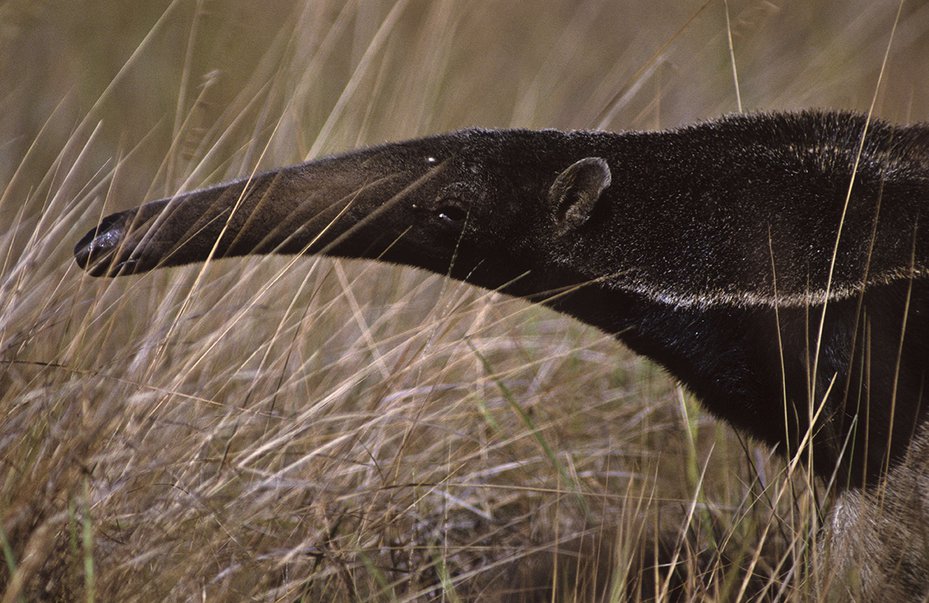
Giant anteater (Myrmecophaga tridactyla), in portuguese known as tamandua-bandeira, Bananal Island, Brazil. Jose Caldas/Brazil Photos/LightRocket via Getty Images
The eight farms are all in the
Brazilian Cerrado, a climate-critical biodiversity hotspot bordering the Amazon,
the rapid destruction of which could already be accelerating the pace of global
warming. Studies have shown it may store between 13.7 to 29.7 billion tonnes of
carbon dioxide. The lower estimate is similar
to the level of annual emissions by China, the world’s biggest emitter.
Roughly the size of Western Europe, this living and
breathing carbon sink is known as the “upside down” forest because its roots
reach up to 15 meters below ground level. Its ecosystem promotes stable
rainfall over the neighbouring Amazon rainforest and it feeds most of Brazil’s
river basins. It is home to endangered species including the jaguar, armadillo
and giant anteater.
The San Diego Pension Fund was offered comment on these
issues twice but did not respond. In contrast the London Pension Fund Authority
replied saying it took its “commitment to responsible investment seriously” and
that the fund was coming to its final stage of liquidation, but that it was
“not appropriate for us to comment on a fund manager’s behalf.”
The
Lancashire County Council Pension Fund also replied, stating that it “is
committed to protecting the long-term financial interests of all its clients”
and that it maintains “a responsible investment approach”, taking “accusations
of this kind very seriously”. It encouraged us to “speak to Brookfield directly”.
Brookfield denied the allegations, stating it “unequivocally refute[s] the specific
allegations made by Global Witness – Brookfield has always acted in accordance
with all applicable laws and regulations. Brookfield is committed to the
highest standards of ethical behaviour across all our global investments, and
we move quickly to address issues when they arise. We have been invested in
Brazil for over one hundred years and we have been proud to support the country
build and operate vital infrastructure.
"While we are no longer active in
farming, timber or mining in Brazil, we continue to operate assets in a range
of sectors and we look forward to continuing supporting the country on its
development towards a Net Zero and thriving economy.” When pressed on what
evidence they had that could substantiate its alleged refutation of the
allegations, it did not reply.
Brookfield’s involvement in
clearing the Cerrado’s climate-critical forests is not only environmentally
damaging, but occurred at a time when a variety
of studies
found the majority of the deforestation there to be of uncertain
legality.
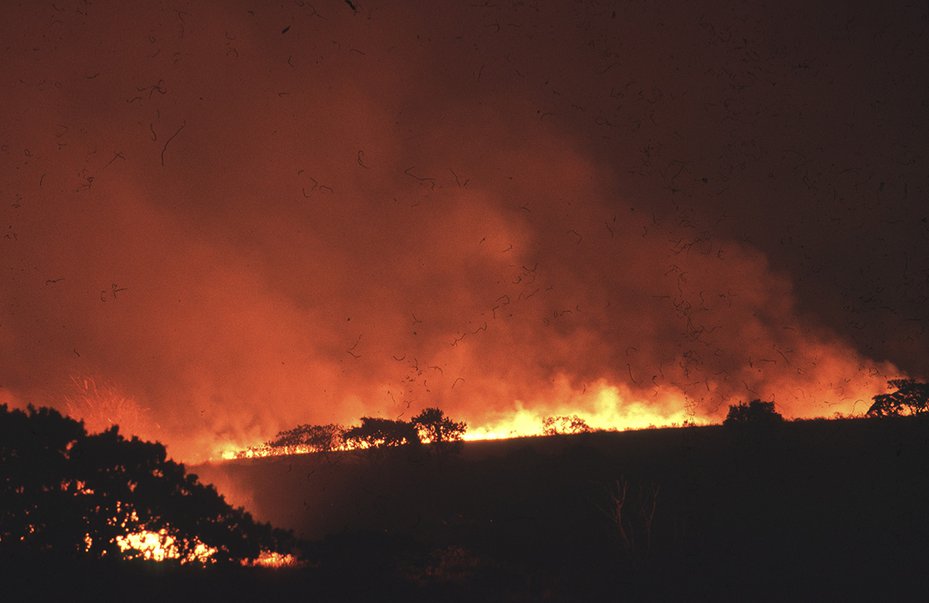
Clearing of Cerrado vegetation of the subtropical savanna biome by burning in Minas Gerais State, Brazil. Jose Caldas/Brazil Photos/LightRocket via Getty Images
Lack of information and transparency on permitted deforestation
Despite filing freedom of
information requests to relevant state authorities, we were unable
to obtain permits that are needed to authorise deforestation under Brazilian
law for at least seven of the eight Brookfield farms identified. Our analysis
found around 6,700ha of deforestation at these farms between June 2012 and June
2021 – equivalent to 8,205 football pitches or more than half the size of San
Francisco. But Brazilian authorities were unable to provide information – meant
to be publicly available - on whether this was legal.
Fazenda Nebraska was the only
farm for which state authorities could share permits covering the time
deforestation took place.
Environmental bodies are meant to
publish information about deforestation permits in an official gazette easily
available to the public, under Brazil’s environmental transparency law of 2003.
But the legality of clearing at the seven farms could not be verified because state
authorities either failed to provide information or declined to answer our freedom of information requests for the deforestation permits. Some
even cited privacy concerns and said the farms’ owners would have to provide
the information. When we pressed Brookfield for evidence it had
that might show the legality of the forest clearance, it did not provide that
information.
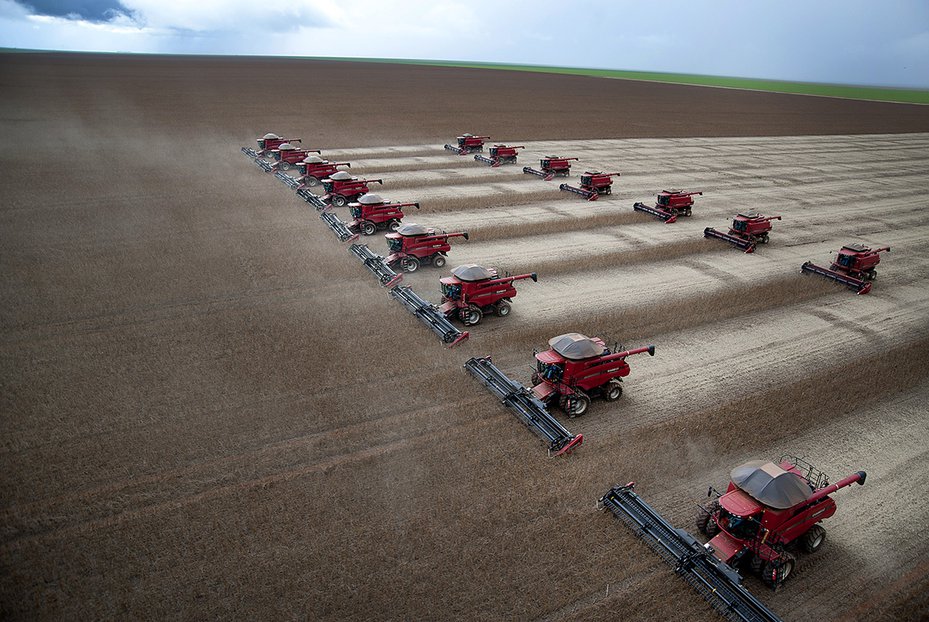
Combines harvest soybeans near Tangara da Serra in the Cerrado part of Mato Grosso, Brazil. Paulo Fridman/Bloomberg via Getty Images
Neither Brookfield nor its
Brazilian arm appear to have a corporate policy committed to eliminating
deforestation from its farms or supply chain, making it unusual among major soy
producers. Brookfield Brazil’s latest annual report explains it is a member of
several external environmental or standards schemes.
This is despite well-established
links between soy and deforestation in Brazil, which produces around a third of
the world’s soy. The Cerrado, where the eight Brookfield farms we identified are located, is a particular deforestation hotspot for soy and
reportedly the site of 90% of deforestation linked to soy cultivation in
Brazil. The majority of national
production has shifted to this savannah land since soy producers vowed in 2006
to stop cultivating soy in the Amazon.
The omissions in Brookfield’s environmental
policies are particularly glaring because of its scale in Brazil, controlling
an $8 billion timber and agribusiness empire.
Fazenda Colorado, a soybean farm
in Tocantins state, was the site of 126ha of deforestation between September
2012 and July 2018, primarily in 2012 and 2014, according to our
analysis. Police found 42 farm workers living in slave-like conditions inside
the farm in 2014, 28 of whom were housed in a 70m2 square house with
no toilets or showers, according to court papers from November 2021 and local
newspaper reports.
The Brookfield-controlled firm
Brookfield Brasil Participacoes (BBP) was fined $800,000 for slave labour
offences at Fazenda Colorado, in a ruling upheld by a regional labour court in
December 2021.
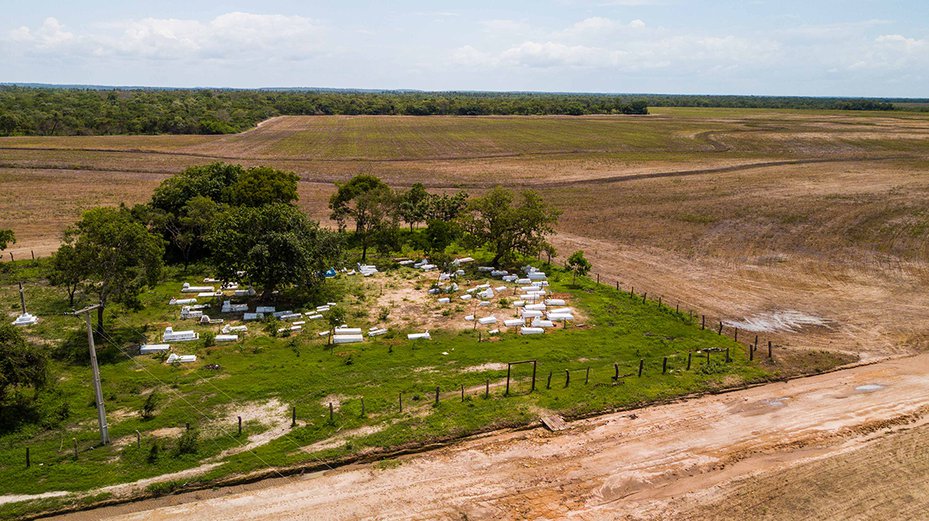
The region between the states of Maranhão, Tocantins, Piauí and Bahia, known as MATOPIBA in Brazil, is considered the showcase of Brazilian agribusiness. Fernanda Ligabue / Greenpeace
A Labour court in Tocantins ruled
in 2014 that both Brookfield Brasil Participacoes (BBP) and Indaia Agronegocio
(Indaia), Fazenda Colorado’s direct owner, were jointly liable for allegations
of workers being held in “slave-like” conditions at the farm in 2014. The firms
were condemned to pay a R$800,000 ($163,000) fine - a ruling they both
appealed.
Despite their argument to the
contrary, Indaia was controlled by BBP according to the court. Renato Cassim
Cavalini, who at the time was CEO of both Brookfield Agricultural Group and
Vice-President of Brookfield Asset Management, was director and controlling
shareholder of both Indaia and BBP, the court said. Brookfield Brasil
Participações 010 and Brookfield Brasil Participações 011 are both listed as “companies
under common control” of Brookfield Brasil Asset Management Investimentos
(BBAMI), in a document filed to the CVM, Brazil’s securities and exchange
commission in 2015 and updated in April 2021. BBAMI is an investment fund directly
controlled by Brookfield Brasil Ltda and indirectly controlled by Brookfield
Asset Management in Canada and BHAL Global Corporate Ltd in the UK, amongst
others, according to this document.
BBP had previously argued it did
not share direction, control, administration or partners with Indaia. But in December
2021, a regional court upheld a judgement that recognised both companies as an
economic group, ordered them to pay the amounts jointly and rejected the
appeal. Indaia denied being responsible
for the working conditions, said it complied with labour standards, and argued
it was not responsible for the work done, which had been merely to clean the
soil, and that labourers had been free to choose where to sleep. BBP denied
corporate ownership or responsibility for Indaia, according to court documents
from November 2021. Both
Indaia and BBP appealed the decision in the Superior Labour Court (TST) and in
June 2022 were awaiting a decision.
Brookfield expanded its British
modern-day slavery and human trafficking policy in 2021 to cover its operations
globally. The modern slavery statement referenced in its latest ESG report
says: “Our strategies to prevent modern slavery are designed to be
proportionate to the risks identified and are addressed and mitigated taking
into account the nature of the risks and of the assets and operations to which
they apply, the geographic location and sector, the economic, political and
regulatory environment, and our assessment of the benefits to be derived from
such mitigation measures.” These commitments appear to stand in contrast to its
actions in the ongoing slave labour case.
In response to these allegations Brookfield said
“in 2014, we became aware of a contractor
contravening labour laws when working on one of our sites. We took immediate
and decisive action. Despite a court ruling recognizing that these were not our
employees, we chose to honour the contractor’s compensation obligations (while
maintaining our right to claim against it) and worked to put considerably
stronger safeguards in place thereafter.” When asked if denying corporate
ownership of the property constituted “decisive action”, Brookfield did not
reply.
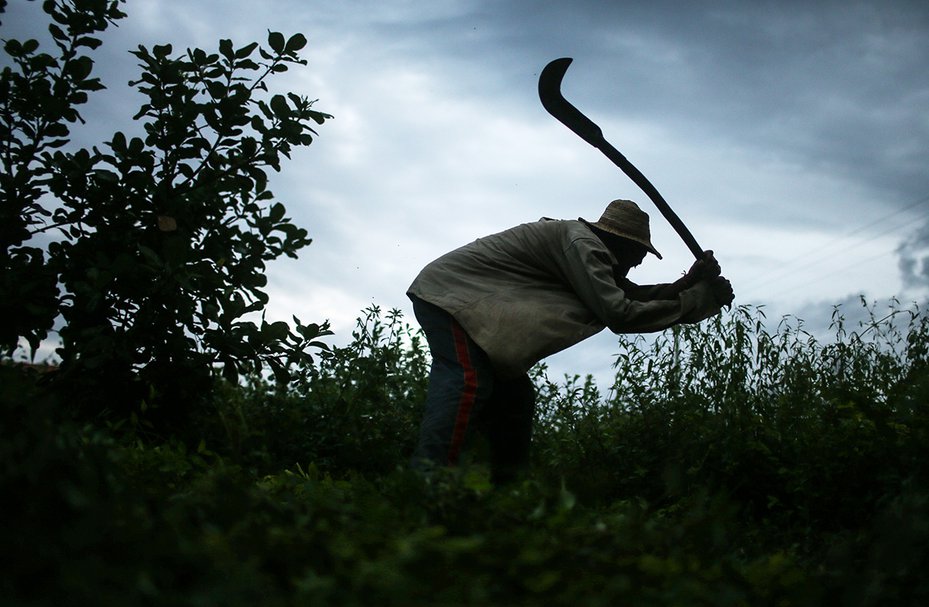
A former slave labourer demonstrates how he cleared brush with his sickle, in Piauí state, Brazil. Photo by Mario Tama/Getty Images
Brookfield appears to be in
breach of the membership guidelines of the Round Table on Responsible Soy
(RTRS), a Swiss voluntary certification scheme. Brookfield Brasil highlights its
farms’ membership of the RTRS in its annual report for 2020-2021.
The RTRS prohibits the clearing
of any “natural land” for soy in Brazil after 2016, including any land with
natural vegetation such as Cerrado land. It endorsed the “Cerrado Manifesto” in 2017, a
zero-deforestation pledge.
But 1,900 hectares of
deforestation took place at eight Brookfield farms on Cerrado land between the
start of 2016 and June 2021, our analysis of official data suggests.
All of these farms were registered with soy production as their primary aim, according
to unofficial corporate data available online.
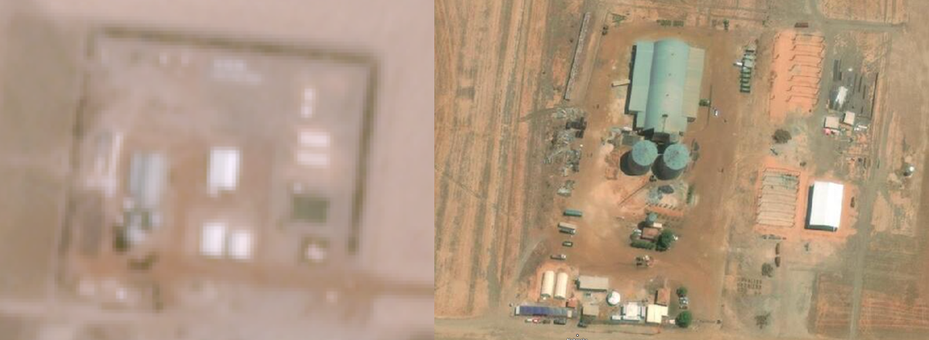
Satellite images of soy storage bins at Fazenda Nebraska in June 2019, after it had been acquired by Brookfield Agricultural Group, left (Credit: Planet Labs Inc.) and July 2021, just before it was sold (Credit: Maxar Technologies).
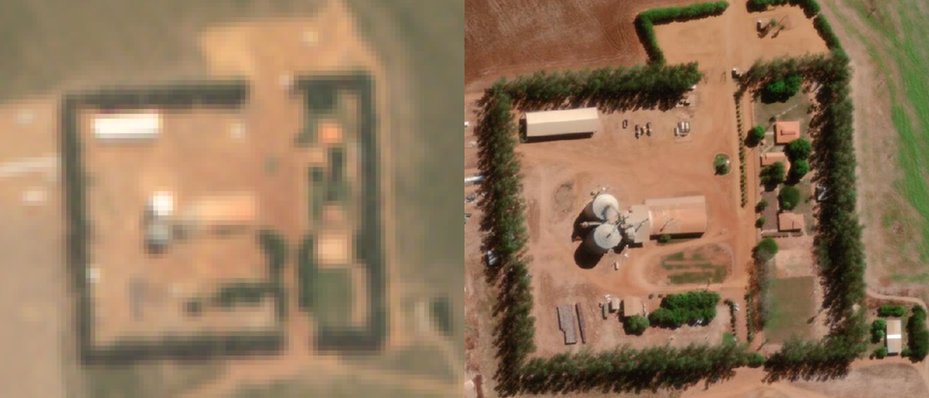
Satellite images of apparent soy storage bins at Fazenda Horizontina Leste in December 2015, after it had been acquired by Brookfield Agricultural Group, left (Credit: Planet Labs Inc.) and in April 2022 after it was sold (Credit: Maxar Technologies).
Despite this, the asset manager highlights
its certification by the RTRS and explains the voluntary organisation seeks to guarantee
that soy comes from an “environmentally sound” process.
Companies controlled by Brookfield
combined to make this group the sixth largest soy producer to be actively
registered with the RTRS in Brazil, producing 118,967 tons of soy registered
with the scheme in 2020. Overall it produced 208,000 tons of soy, according to
its latest annual report.
At the time Brookfield had
executive ties to the certification organisation. In 2019, the director of
Brookfield Agricultural Group, Luiz Iaquinta, was made treasurer and a member
of the RTRS’s executive board. While working for Brookfield he also served as
chairman of the RTRS’ taskforce in charge of its communications and spoke at
one of its panel discussions in 2020.
When
informed of these allegations the RTRS said it was “pleased to see an extensive
report dedicated to this important topic”. It went on to say that “Brookfield is not a member of RTRS. A company mentioned in your report “Bartira
Agropecuária S/A” is, however, both RTRS member since 2015 and the holder of a
multisite certificate. Out of the farms mentioned in your report, only
Horizontina Norte and Horizontina Leste are included within the scope of the
certificate under the multisite type.”
RTRS added that “it sets the principles
and indicators that must be complied with for a certificate to be issued” and
that the audit “process is conducted by independent certification bodies which
must have been previously approved by independent accreditation bodies. In the
case of the certificate issued to certain farms operated by Bartira
Agropecuária S/A, the certification body in charge of the process is Control
Union Certificates.”
It further
noted that in “all cases, RTRS President, Vice-presidents and also the
Treasurer follow the instructions expressly given by the Executive Board. The
fact that Bartira Agropecuaria S/A has been elected by the members of the
association as Executive Board member and, subsequently, the members of the
Executive Board elected Mr. Iaquinta as Treasurer does not provide such member
or individual with any special power or influence over the association.” For
its full response please click here.
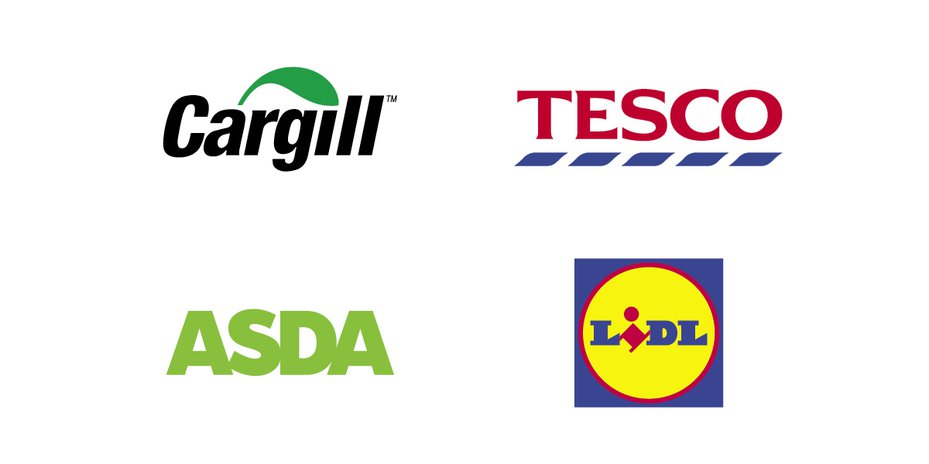
British supermarkets may be linked to the deforestation of the Brazilian Cerrado
British supermarket chicken
Some of the chicken sold at
British supermarkets in recent years may have been fed on soy originating from
one of Brookfield’s deforested farms.
The commodity trader Cargill
admitted in 2019 to buying soy from Brookfield’s Fazenda Nebraska, after a
report from the NGO Mighty Earth identified deforestation and a forest fire at
the farm. This farm was the site of
1,951ha of deforestation between 2014 and 2021, according to our
analysis.
Cargill is the United States’
largest private company by revenue, according to Forbes, and has reportedly led
corporate resistance to a moratorium on soy production in the Cerrado. Cargill
ships more than 100,000 tonnes of soya beans to the UK every year from Brazil’s
threatened Cerrado savannah, according to an estimate by the Bureau of
Investigative Journalism. Its analysis linked these beans to chickens
sold at Nandos, Asda, Lidl and Tesco, via Cargill’s soy crushing plant in
Liverpool and its poultry feed mills in Hereford and Banbury.
About a fifth of the soy imported
to the European Union (EU) from the Amazon and Cerrado regions comes from
illegally cleared land, according to a 2020 study in the academic magazine
Science.
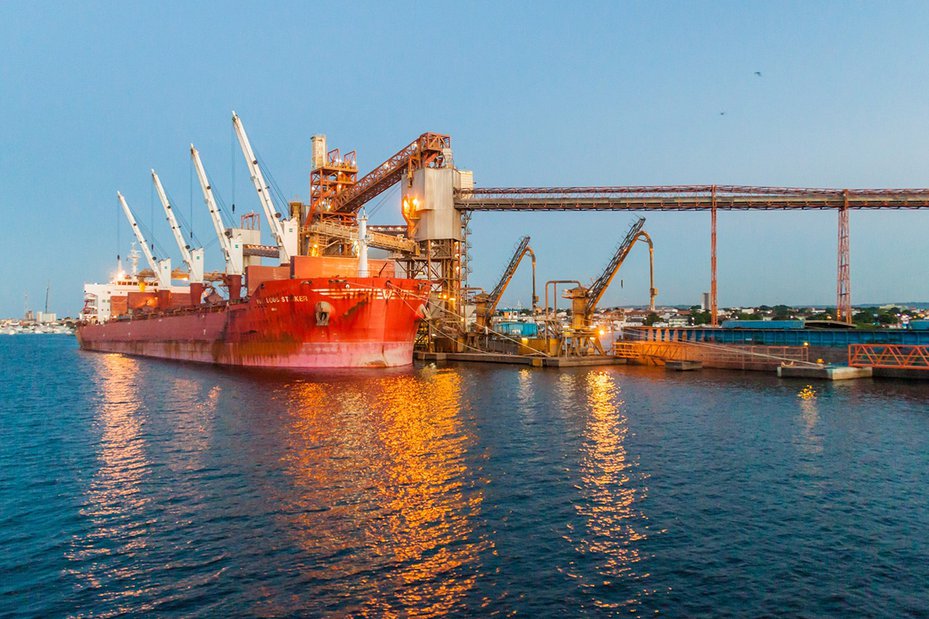
View of soybean terminal of Cargill corporation in a river port of Santarem. Matyas Rehak via Shutterstock
When informed of these
allegations Nando’s stated it was “acutely aware of the devastating impact
deforestation is having, not only on climate change, but also on ecological
collapse. We work hard to ensure that our supply chain is not linked to
deforestation and that all our soy is sourced under the Round Table on
Responsible Soy (RTRS) or equivalent certification and now encourage mass
balance soy purchases as a minimum standard. These commitments apply not only
to the soy we use as a direct ingredient but also to our supply chain.”
It
added that this year it had “also joined the UK Soy Manifesto, alongside our
suppliers, further cementing our position to ensure all our soy is
deforestation and conversion free and setting expectations of this in our
latest food policy for suppliers. Alongside this, we continue to work closely
with experts and suppliers to research more sustainable alternatives to soy for
use in animal feed.”
Lidl said it operated “with a
fundamental respect for the human rights of the people we interact with and
take this responsibility extremely seriously. As such, we are committed to
implementing due diligence on this topic, improving working conditions and
upholding human rights at all levels of the supply chain, in line with the UN
Guiding Principles.”
Cargill stated it had “prioritized the adoption of policies across our supply chains, including
our Policy on Sustainable Soy – South American
Origins, and our Commitment on Human Rights. We strive to abide by these rules
and expect the same level of commitment from our suppliers as detailed in our Supplier Code of Conduct.”
It went on to say it had “robust
procedures in place to ensure we are respecting social and environmental
restrictions - Slave Labor, Soy Moratorium, Green Grain
Protocol and Embargoes (from federal and state agencies) - which includes respecting regulated
indigenous areas, from which we do not source grains. We monitor our suppliers against these criteria
and embargo lists and can confirm the farm in question is in compliance. As always, if we find any violation of our
policies and commitments, the producer will be immediately blocked from our
supply chain.”
Asda and Tesco did not reply to offers for comment.
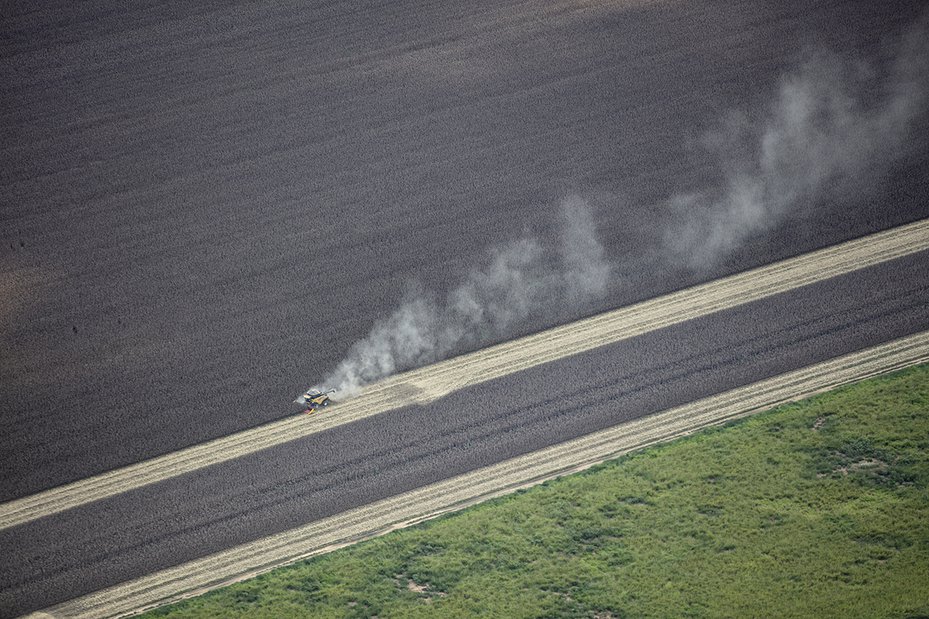
Soya Production in the Cerrado Region, Brazil. Harvest in the municipality of Riachão das Neves, in the state of Bahia. Greenpeace
Carbon footprint: over a million red-eye flights
Brookfield claims to be a
responsible and sustainable investor, and at the time of writing, the front
page of its website showcased Mr Carney’s newspaper pieces and videos on green
finance.
Our analysis
estimates the deforestation found in Brookfield’s farms over nine years
released 600,000 tonnes of carbon dioxide, equivalent to flying from London to
New York 1.2 million times (1,217,038 flights at 493kg of CO2e per flight). This
analysis is based on an estimate of the tropical biomass present on the eight
farms before deforestation took place (see Annexe A in the PDF version of the
report for the methodology).
This poor track record raises
questions about how Brookfield will meet its new commitment to net zero by 2050
as part of its GFANZ membership. Tropical forests store vast quantities of
carbon and their destruction accounts for the majority of carbon dioxide emissions
that come from land use and land use change, according to the Intergovernmental
Panel on Climate Change.
Brookfield Brazil says its own
greenhouse gas inventory for agricultural operations showed its farms captured
309,000 tons of carbon “through biological sequestration” in the 2019/20
harvesting period. It did not explain how this sequestration took place, or
whether this considered deforestation but said two of its farms were accredited
with Cargill’s net zero program.
Dr Ed Mitchard, a University of
Edinburgh professor who specialises in mapping natural carbon stocks, advised
on our carbon accounting. He warned against companies continuing to
deforest tropical regions and reaching net zero by using offsets.
He said: “Fundamentally in Brazil
we need to stop cutting down trees. Deforestation is already making
temperatures higher, causing more drought, more fires, impacting more trees and
we will get more of this vicious circle in the coming decade.”
“There was great fanfare at
GFANZ’s launch but if it’s not trickling down to what high profile members are
doing in terms of land ownership that is very worrying, and suggests these
large corporations are intending to carry on with business as usual.”
Brookfield is no stranger to
controversies over carbon accounting. In February 2021, six months after he was
hired by Brookfield, Carney claimed at a Bloomberg conference that his employer
had a net zero emissions impact across its entire portfolio due to its
“enormous renewables business that we've built up and all of the avoided
emissions that come with that”. He later retracted this claim, which had been
based on a controversial method of offsetting emissions by measuring those emissions
that were “avoided” through the consumption of green energy assets Brookfield
has invested in.
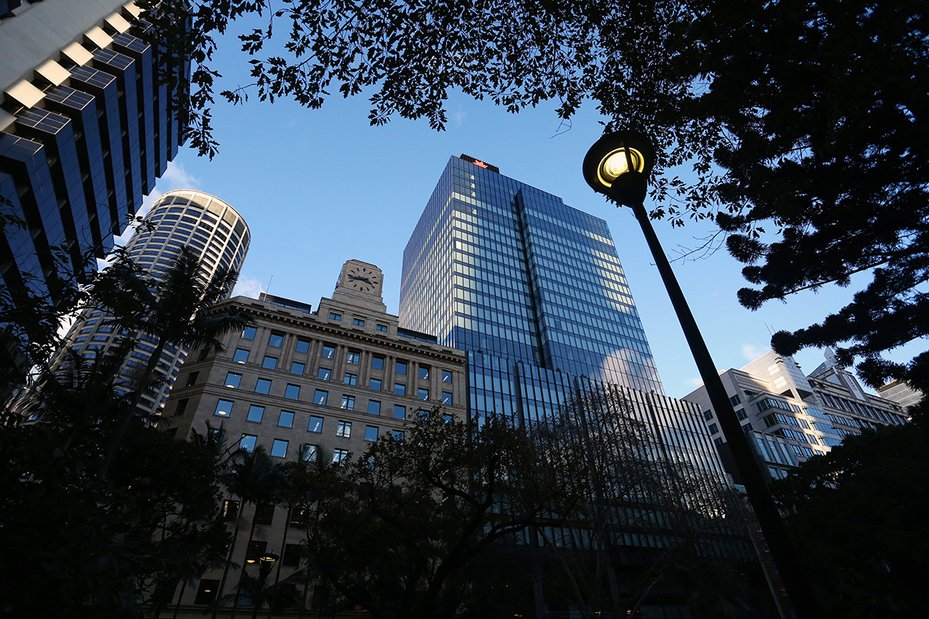
Brookfield Asset Management’s Asia-Pacific headquarters. Lisa Maree Williams/Bloomberg via Getty Images
Foreign companies are banned from
owning more than a quarter of the land in any Brazilian municipality, under a
2010 legal interpretation of existing restrictions on foreign ownership of
Brazilian land. This includes
firms registered in Brazil but ultimately controlled from abroad, like
Brookfield.
“Brookfield’s elaborate financial
strategies are interesting because these have traditionally been used to
circumvent Brazilian laws on foreign land ownership,” said Junior Aleixo, a
sociologist at the Federal Rural University of Rio de Janeiro, who wrote his
thesis on Brookfield’s land ownership model in 2019 as part of GEMAP, a public
policy and agribusiness research group.
Aleixo added: “These strategies facilitate
control of the land while making its ownership deliberately difficult to pin
down.” “The ecological impact is very high, as most of these funds are more
concerned with the fluctuation of land and commodity prices than with the
economic redistribution and socio-environmental impact of their investments.”
Because Brookfield does not
publish an up-to-date list of its direct and indirect farm holdings in Brazil,
it is not possible to establish how close its farm holdings come to this limit
and whether they exceed it.
One of Brookfield’s strategies
has been to invest in farmland through investment funds. Brookfield Brasil
Asset Management Investimentos (BBAMI) and Brookfield Brazil Agriland fund
indirectly controlled the farms Horizontina Leste, Nebraska and Horizontina
Norte until 2021, according to sale documents provided to the Brazilian securities
and exchange commission, the CVM. It also indirectly controlled Caiapo Agronegocio
and Macaubapar Participacoes, linked to the Nazare Group of farms, Alvorada and
Talisma.
A Brookfield-controlled firm called Agripar
Participações, of which the Agriland fund was a shareholder as of 2012,
indirectly controlled a number of farms, Horizontina Norte, Horizontina Leste,
Alvorada, Talismã and Colorado, according to a 2017 presentation by the asset
manager.
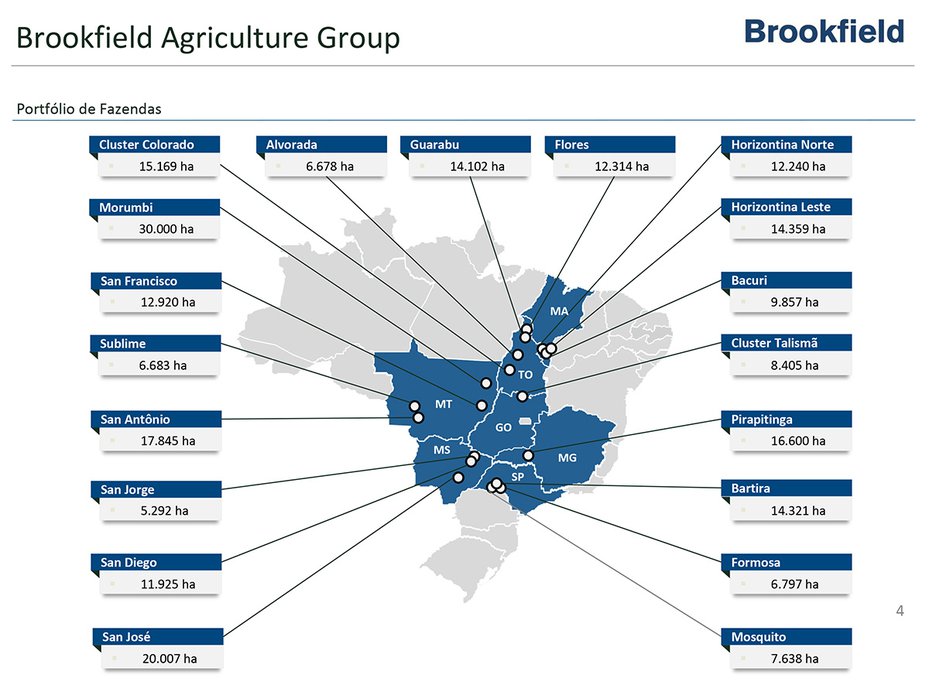
Extract from a Brookfield presentation on Fazendas Bartira
Another indirect acquisition strategy
has been the issuance of Certificates of Agribusiness Receivables (CRAs),
tradable credit instruments which pay investors a monthly fee and are backed by
agricultural land. Brookfield’s Brazilian farm holding group Bartira
Agropecuária raised R$70 million in 2016 through issuing CRAs, according to
Aleixo’s research.
Brookfield reportedly bought
these securities from Bartira – which it already owned - via a financial
services firm, then transferred the funds back to Bartira, which in turn used
the money to buy more land through Brazilian-registered farming companies. The
2017 presentation shows that Bartira controlled the deforestation-linked San
Diego farm, where we found 545 hectares of cleared forests.
Brookfield has also used
debt-to-equity swaps to control its farming empire, where it buys debts in a Brazilian
company which are then transformed into stocks. In 2017, the Agriland fund,
reportedly bought debentures, a type of loan agreement, in Embaúba
Participações, the Brazilian indirect owner of Fazenda Nebraska, on the
condition these would be converted into shares as soon as Embauba was able to
acquire rural properties. We found 1,952 hectares of deforestation
at Fazenda Nebraska between 2014 and 2021.
Sell-off
Brookfield’s CEO Bruce Platt has
said in interviews that
the company buys distressed assets during crises and sells them once the price
has gone back up. “We’re in the business of owning the backbone of the
global economy,” he told the Financial Times in 2018. “[But] what we do is
behind the scenes. Nobody knows we’re there, and we provide critical
infrastructure…”
He went on to describe the
company’s strategy in Brazil: “ … there was an enormous void of foreign direct
investment into Brazil, therefore we bought a lot of things at what we deemed
to be fractions of the replacement cost.”
Filings to the CVM show that
Brookfield sold off many of the indirect owners of its Cerrado farms in August 2021,
including those of Horizontina Leste, Horizontina Norte, Nebraska,Nazaré,
Alvorada and Talisma. It reportedly sold 100,000ha of farmland to
the real estate fund Terrax FII in August 2021, after selling another 130,000ha
earlier in the year.
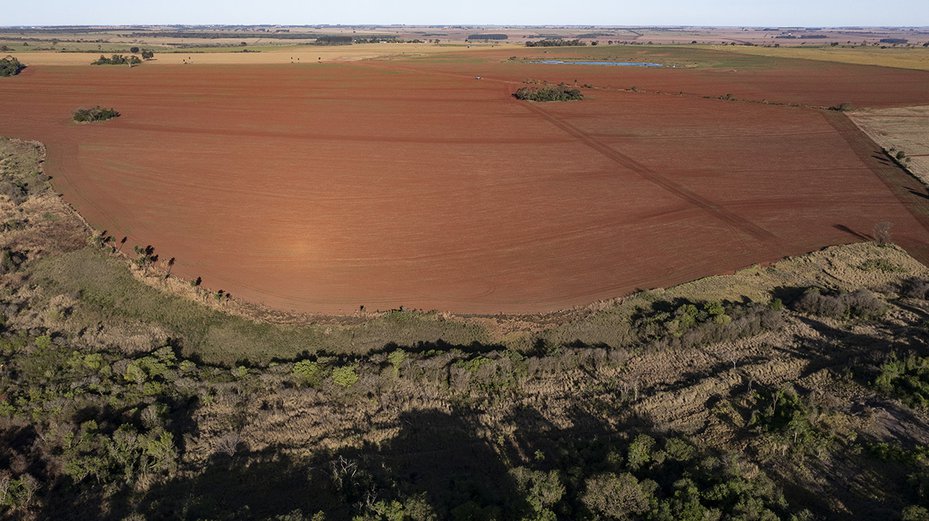
The Cerrado is a tropical savannah covering 23% of the surface of Brazil, or two million square kilometres, half the size of the European Union. It has lost about 50% of its natural vegetation. Marizilda Cruppe / Greenpeace
The financialization of Brazil’s
climate-critical land could be set to continue. In 2021 the Brazilian senate
approved a new tax-efficient category of investment fund, known as FIAGRO,
which makes it easier for foreign financial institutions to invest in Brazilian
agriculture. It has specific provisions to encourage lenders, insurers, venture
capitalist and financial technology companies to invest in rural land without
breaking foreign ownership rules, by acquiring shares in funds which hold
titles to these lands.
As Brazil seeks to attract more
investments into its land use sector, Brookfield’s failings show how regulation
in the UK, the US and the EU is required, to ensure the financial sector
carries out continuous due diligence on deforestation before and after entering
into such ventures.
Deutsche Bank, Bank of America and HSBC: complicit in Brookfield’s forest destruction?
Brookfield Asset Management could
not fund its operations, including forest destruction, without the backing of
some of the world’s biggest financial institutions, including Deutsche Bank,
Bank of America and HSBC, according to our analysis, published in
2021. Our dataset drew on publicly available financial data compiled by the
Dutch non-profit Profundo, to identify which financial institutions were
providing crucial shareholdings, bond holdings, loans, revolving credit
facilities and underwriting services to 20 of the world’s most notorious
agribusinesses linked with forest destruction between 2016 and 2020.
Deutsche Bank declined to
comment when contacted by us in 2021 about its investment in 19
agribusinesses accused of deforestation, including Brookfield. It has signed
the UN Principles for Responsible Banking, which commits banks to the Paris
Climate Agreement Goals, and has also said it will not finance the destruction
of primary forest, High Conservation Value or peatlands, illegal logging, and
uncontrolled or illegal use of fire where there is clear and known evidence of
any of these harms taking place. But it stopped short of prohibiting the
financing of all deforestation and implied some forest loss would be acceptable
if offset through tree-planting.
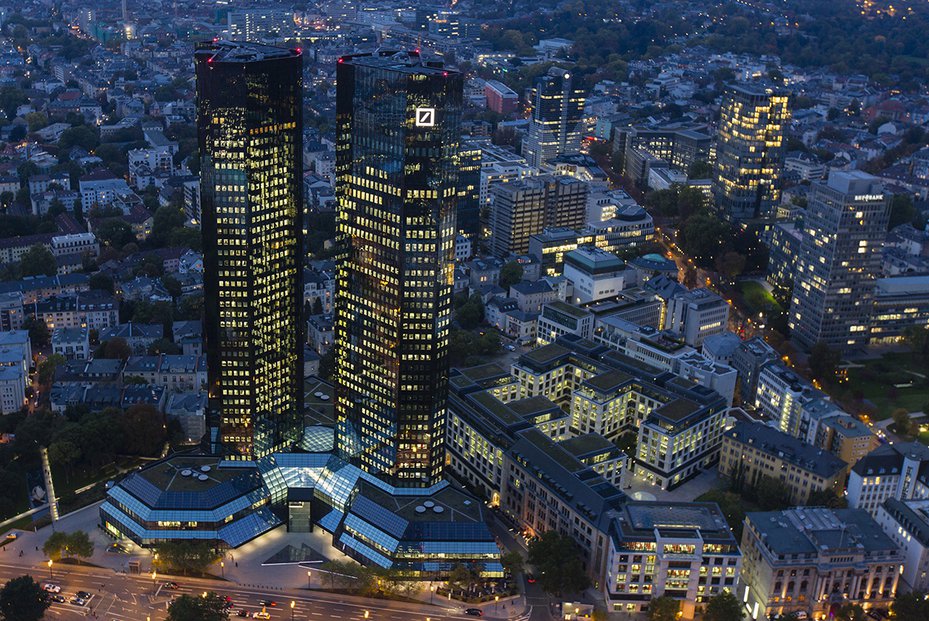
Deutsche Bank AG’s headquarters in Frankfurt, Germany. Martin Leissl/Bloomberg via Getty Images
In response to the allegations
about Brookfield, Deutsche Bank said “as a matter of policy we do not comment on
client relationships - not even potential or former ones” but that it had a “clear set of guiding principles and requirements
that we apply to our client and business selection processes in order to
promote sustainable agribusiness. As part of this approach, we require clients
to participate in certification schemes and expect them to publicly demonstrate
their commitment to No Deforestation standards.
"We do not knowingly finance
activities that result in the clearing of primary forests, involve illegal
logging or conversion of High Conservation Value, High Carbon Stocks forests or
peat lands. Where we work with conglomerates, we make a significant effort to
ensure our financing is only directed to activities that are in line with our
policies.”
Bank of America, with whom
Brookfield had the second most significant banking relationship by size of
combined lending, investing and underwriting, says it supports reforestation
projects in dozens of US cities. Its most recent forest policy says it will not
underwrite bonds where proceeds are specifically used to clear primary forest
or for the unauthorised clearance of high conservation value forests.
It also
says it will not finance operations in areas where indigenous land claims are
not settled. Our data suggests Bank of America funnelled an
estimated £1 billion into Brookfield between 2016 and 2020, primarily by
under-writing bond issuances. When offered comment on these allegations it did
not reply.
Asset managers Citigroup, Vanguard
and Blackrock, all US-based, were some of Brookfield’s biggest
investors. Two years ago, Blackrock’s chief executive Larry Fink wrote to
clients that he considered climate risk an investment risk, and that the firm
would make sustainability its new standard for investing.
When contacted in
2021 about its exposure to firms accused of deforestation, including
Brookfield, Blackrock told us it does not provide direct financing
or lending facilities to individual companies and does not control the
strategic decision-making of businesses in which it is a minority shareholder. It said 90% of its equity holdings are through
index funds or Exchange Traded Funds in which clients choose where to allocate
their assets. When offered comment on the allegations against Brookfield in
this report, none of these investors responded.
The third largest banking relationship was with HSBC,
the British bank, which channelled £880 million to Brookfield, also primarily
in the form of underwriting its bond issuances. HSBC made a public commitment
to stop financing firms accused of deforestation in 2017. In 2021, the bank
told us its relationship with 19 destructive agribusinesses
including Brookfield were either not linked to forestry, palm oil or cattle, or
that the relationship had ended or was in the process of ending.
The bank said
in some cases, it had only indirect relationships with the agribusinesses as
nominal manager of its shares on behalf of a customer, meaning it had no
beneficial interest in or direct influence over the underlying agribusiness.

HSBC has been linked with several controversial agribusinesses and has been involved in deals with top deforesters worth an estimated $6.85 billion since 2016. Global Witness
On the Brookfield allegations and
its financial link to the company, HSBC stated it could not “confirm whether or
not a customer relationship exists” and was therefore not “able to comment on
this company directly”. It added that it “recognise[s] the importance of
protecting forests and Indigenous peoples and this is incorporated in HSBC’s
approach to deforestation and related issues which is set out in our
Sustainability Risk policies on Forestry
and Agricultural
Commodities, which incorporate No Deforestation, No Peat and No
Exploitation requirements, and the use and support of credible independent
certification schemes. For investments, our Asset Management business has Engagement
policies including one dedicated to Biodiversity
related issues.”
These banks and asset managers
have all featured in previous Global Witness reports on deforestation.
Other British financial
institutions had significant exposure to Brookfield too. The Lancashire County
Council Pension Fund and the London Pension Funds Authority have both invested
directly in Brookfield’s Brazilian agricultural fund.
Deutsche Bank, Bank of America
and HSBC joined the Net-Zero Banking Alliance that sits under GFANZ in April
2021, after the financial analysis discussed in this section was published by Global
Witness last year. This analysis
demonstrates the scale of investment by GFANZ members in carbon intensive,
deforestation linked businesses, including Brookfield.
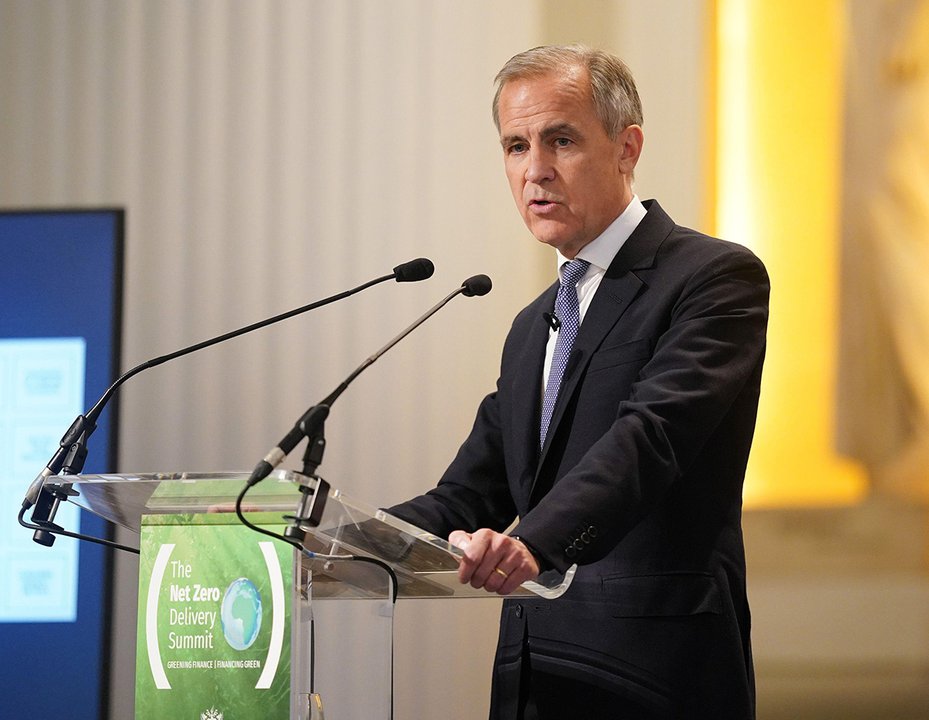
Mark Carney, UN Special Envoy on Climate action and Finance, and Co-Chair of GFANZ, speaks during the Net Zero Delivery Summit at the Mansion House. PA Images / Alamy Stock Photo
Mark Carney: A poster boy for green finance
Mr Carney’s best-selling book Values
and speeches as UN Special Envoy on Climate Action and Finance preach a simple
idea: climate change can be stopped if large banks, pension funds and asset
managers voluntarily change their investment habits to reduce carbon emissions.
“Finance is no longer a mirror
that reflects a world that’s not doing nearly enough. It’s become a window
through which ambitious climate action can deliver the sustainable future that
people all over the world are demanding,” Carney said in a keynote speech at
COP26 in November 2021. “It will help end the tragedy on the horizon.”
Mr Carney’s financial experience,
network of political contacts and UN Special Envoy status give credibility to
the idea that financiers can be trusted to act on climate change. After more than a decade as head of the
Bank of Canada and then the Bank of England, Mr Carney was appointed financial
adviser to the UK government for COP26. He also launched an international
taskforce on carbon credit markets, to help companies use controversial “carbon
offsets” to reach net-zero emission goals.
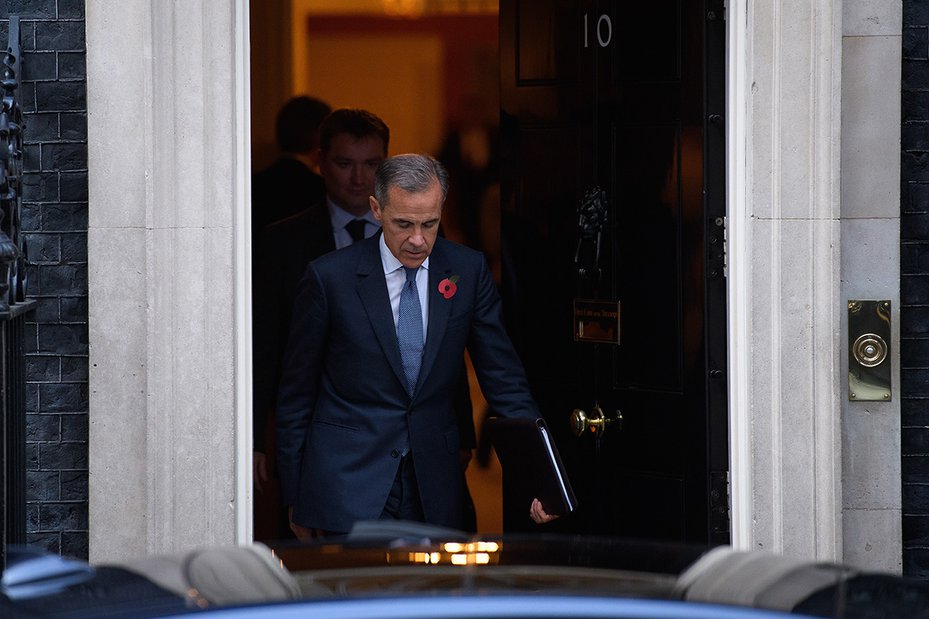
Mark Carney leaves 10 Downing Street. Leon Neal/Getty Images
“The personal clout of men like
Carney is remarkable because they provide a way to lend the credibility of ‘we
understand business and finance’ to the climate space and make it a business
issue rather than a hippy green issue,” said Adrienne Buller, a green finance
researcher and senior fellow at the thinktank Commonwealth. “But their framing
of climate commitments around net zero is a get out of jail free card because
it only zeroes in on a portion of their assets.”
Mr Carney’s decision to accept a position at Brookfield
while acting as UN Special Envoy on Climate Action and Finance, as well as special
adviser to the UK government on COP26, raises important questions about his
role in promoting weak voluntary schemes that do not effectively prevent the financing
of deforestation or other environmentally damaging businesses and activities.
Mr Carney was appointed
Vice-Chair and head of sustainable investing at Brookfield in August 2020, a
year before any of the nine farms highlighted in this report were sold off. His
base salary at Brookfield is thought to be well above the £879,000 he earned as
governor of the Bank of England and the asset manager openly says it gives
senior leadership team “significant” stakes in the firm. He became Chair of the firm in December 2022.
When offered comment on these
responses, Brookfield replied stating the “allegations refer to periods of time
long before Mr. Carney joined Brookfield and to businesses in which Mr. Carney
had no involvement. Moreover, Mr. Carney has demonstrated considerable
leadership in Brookfield’s transition investing strategy since its launch in 2021,
including spearheading the fundraising and deployment of the world’s largest
climate impact fund.”
Glasgow Financial Alliance for Net Zero (GFANZ): flawed by design?
GFANZ is central to Mr Carney’s climate and finance vision. Launched
in April 2021, GFANZ aims to ‘broaden, deepen and raise
ambition’ to meet the Paris Agreement by creating a united financial sector-wide
net zero alliance. It currently represents 450+ member firms, with more than $130 trillion in assets under
management and advice.
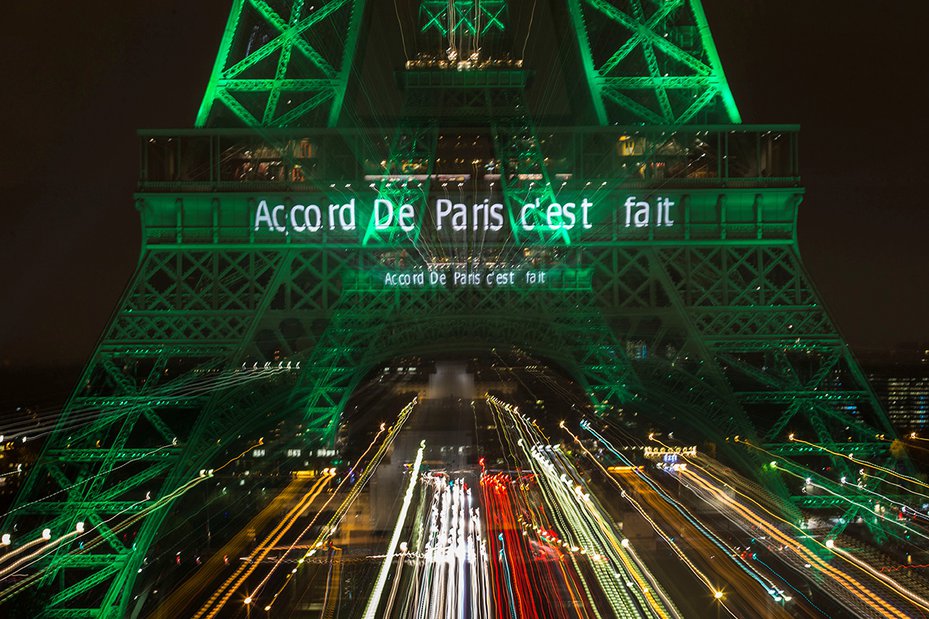
The Eiffel Tower was illuminated in green to celebrate the ratification of the COP21 climate change agreement in Paris. Geoffroy Van Der Hasselt/Anadolu Agency/Getty Images
Individual financial institutions belong to GFANZ through industry-specific
subgroups. For example, Brookfield is a member of the Net Zero Asset Managers
initiative, and its backers Deutsche Bank, Bank of America and HSBC are members
of the Net-Zero Banking Alliance.
GFANZ signatories originally signed up to
mandatory criteria set by the Race to Zero, the UN standard setter for
non-state net zero commitments, including a commitment to half their emissions
by 2030 and reach net zero by 2050. Deforestation
became a key aspect of the Race to Zero criteria in June 2022, with new and
existing members – including Brookfield – required to pledge to achieve and
maintain operations and supply chains free of deforestation by 2025 at the
latest.
In September 2022, GFANZ
co-chairs, including Mark Carney, issued a press release warning that broader net
zero targets are unattainable without immediate action to end the financing of
deforestation, with the need to end all land conversion by 2030 at the absolute
latest to limit global temperature rises to 1.5°C.
The Science Based Target initiative (SBTi) –
which assesses and certifies private sector emissions targets – also
requires companies
have a
target date of eliminating deforestation by 2025 or earlier for a target to be
scientifically validated. In line with this, GFANZ's guidance on transition plans recommends financial institutions should have deforestation policies and embed their net zero targets into all investment decision-making tools and processes.
While this guidance recognises that ending deforestation financing is an urgent priority, GFANZ itself does not have the power to compel its members to meet their voluntary targets and the alliance appears to be reducing, not building, credible monitoring and accountability controls.
In October 2022, GFANZ announced it would no longer be mandatory for its member alliances to adhere to the UN Race to Zero targets and criteria, citing that all of its sector-specific alliances "are independent initiatives subject only to their individual governance structures", with "sole responsibility" for changes to their targets and membership criteria. Prior to this, the alliance described itself as "anchored" in Race to Zero to ensure "credibility and consistency".
GFANZ split from Race to Zero shortly before the planned introduction of an "independent compliance mechanism" by that body, with multiple media reports claiming some financial institutions threatened to quit the alliance over antitrust concerns related to more stringent fossil fuel phase-out criteria issued by the UN. GFANZ members must now only "take note" of the advice and guidance issued by Race to Zero, with sector-specific alliances free to set their own standards and targets in the absence of any independent monitoring and accountability functions. This episode demonstrates how easily voluntary initiatives governed by the financial sector can succumb to internal pressure to roll back climate targets and standards.
GFANZ itself has no capacity or resources dedicated to monitoring and verification, and although some sector-specific alliances have designed their own so-called "accountability mechanisms", these procedures lack transparency and independence. For example, the Net Zero Asset Managers initiative to which Brookfield belongs requires the submission of an annual report to a group known as the "Network Partners", which is made up of a further six alliances, demonstrating the labyrinthine complexity and lack of transparency in the governance model of the Race to Zero and GFANZ.
By contrast, the Net-Zero
Banking Alliance, which describes itself as a "bank-led initiative", is
ultimately governed by a Steering Group made up of 12 financial institutions, including
high level representatives of HSBC and Bank of America, who are historic backers of companies such as
Brookfield, as discussed above.
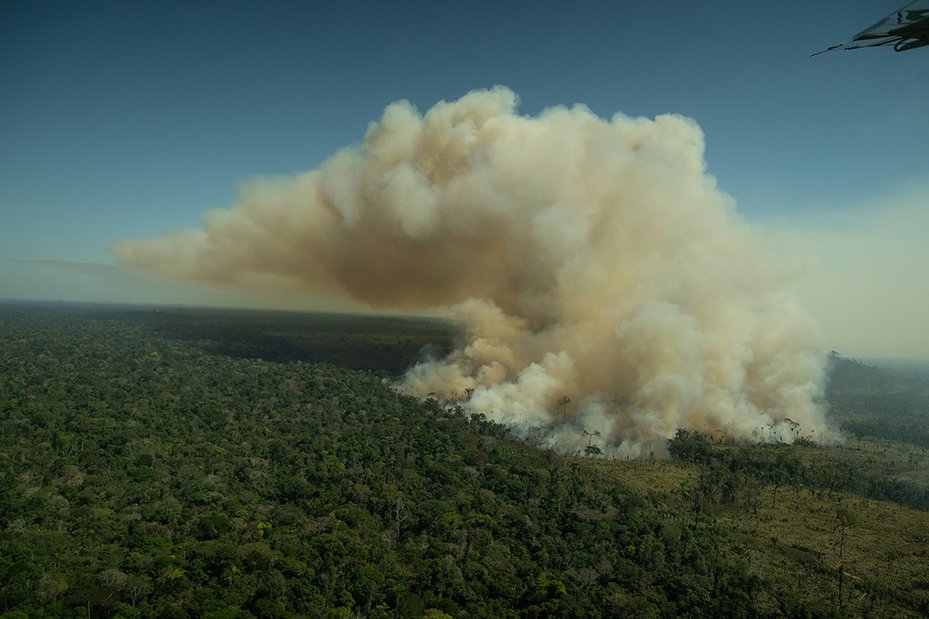
Forest fire in Mato Grosso state, Brazil, 2021. Greenpeace
That GFANZ
is co-chaired by Mark Carney – who is in turn Chair of Brookfield –
demonstrates the contradictions and conflicts of interest that arise when governments rely on the financial
sector to design and implement pledge-based voluntary schemes with no fully transparent
monitoring or accountability mechanisms.
Brookfield denied the allegations, stating it “unequivocally refute[s] allegations of a conflict of interest between Mr. Carney’s outside interests and his connection to these historical allegations”.
In response to these allegations GFANZ said in August 2022 it expected all of its “members, including Brookfield, to meet the requirements of their sector-specific alliances and Race to Zero.” It went on to add that although it could not “comment on specific allegations made about member firms, we can observe that thus far, Brookfield has adhered to all relevant NZAM and Race to Zero policies. Brookfield has adopted targets for one third of its assets under management, committing to reduce emissions by two-thirds from these assets by 2030. We will continue to support all financial institutions in establishing robust plans, targets, and metrics that align with net zero.”
It clarified that the “GFANZ Recommendations and Guidance on Financial Institution Transition Plans, which are currently out for consultation with the intention of being finalized by COP27 this November, recommends that financial institutions establish rigorous policies for ending the financing of carbon-intensive activities such as deforestation. Grounded in the requirements of Race to Zero, GFANZ expects financial institutions to set targets that align with 50% emissions reductions by 2030 and support an end to deforestation by 2025.”
It concluded that it appreciated the “scrutiny and high expectations civil society has for GFANZ.” Race to Zero did not reply to an offer for comment.
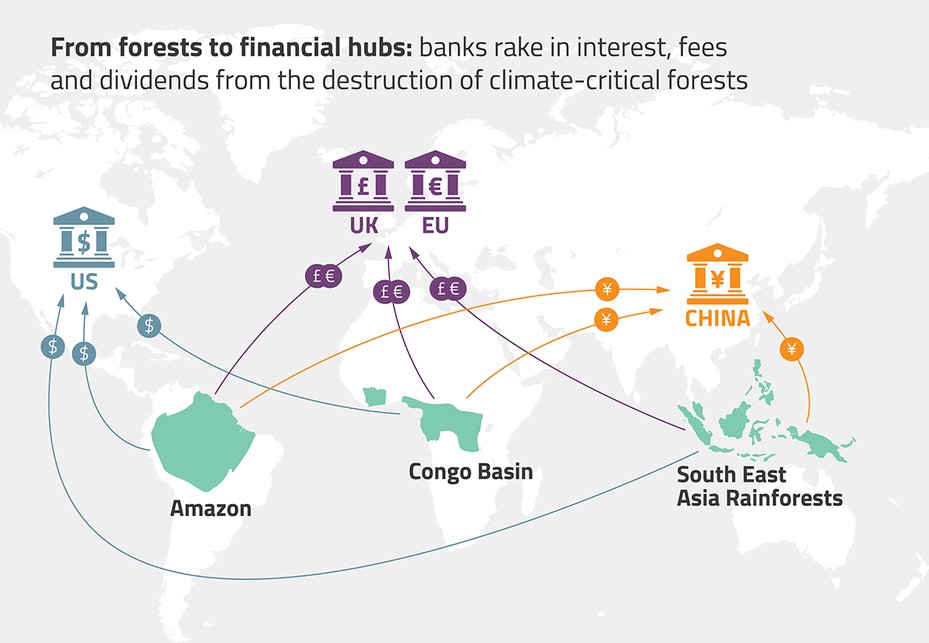
Financial institutions have netted $1.74 billion in interest, dividends and fees from financing the parts of agribusinesses groups that carry the highest deforestation risk. Global Witness
Governments are missing in action
Existing financial regulation and voluntary schemes
have failed to prevent the financing of the destruction of climate-critical
forests, mainly due to the same lack of monitoring and accountability
highlighted above. Instead, new laws are needed to meet 2025
deforestation targets, by preventing and remedying the financing of forest
clearance and human rights abuses. Clearer climate-related legislation is, in
fact, already supported by GFANZ. Responding to us, GFANZ stated it
would “like nothing more than for governments to make net zero transition
planning mandatory and transparent, but are stepping in absent government action.”
At COP26, over 140 governments representing 90% of the world’s forests pledged
to halt and reverse forest loss and land degradation by 2030, including through
the ‘alignment of
financial flows with international goals to reverse forest loss and
degradation’. This necessitates a new preventative approach to financial regulation. Ahead of COP27, GFANZ called on G20 governments to "Translate commitments to safeguard nature and prevent deforestation into tangible government policies that can cascade through the private and financial sectors."
To date, however, governments in key financial
centres including the UK, EU and US have relied on inadequate voluntary certification
schemes and financial-sector initiatives, rather than introducing new regulations
to stop institutions from making such investments in the first place. Neither
the EU, UK nor the US have legislation requiring financial institutions to
conduct due diligence specific to deforestation risk.
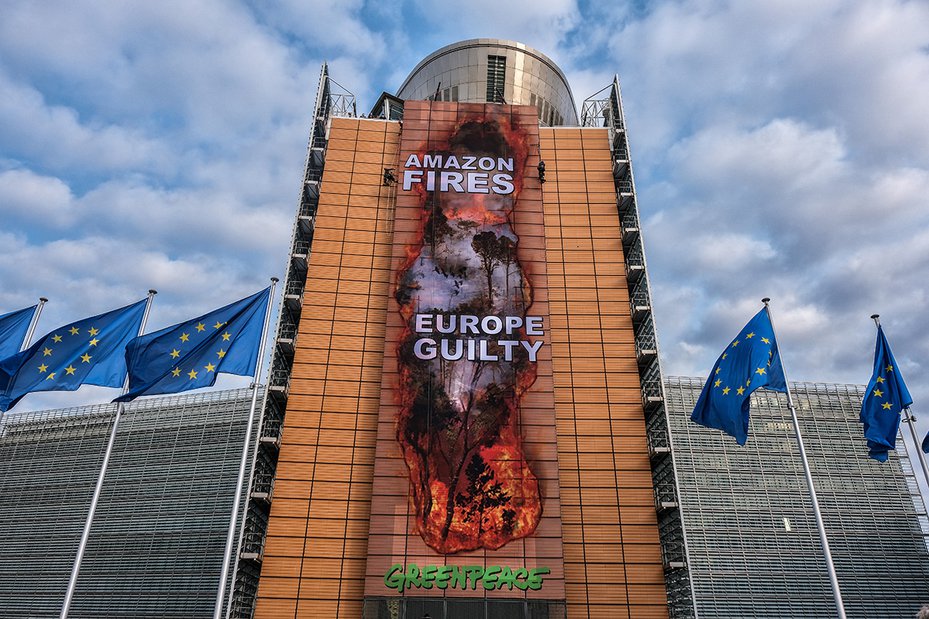
Greenpeace campaigners cover the EU Commission’s headquarters with giant image of Amazon fires. Tim Dirven / Greenpeace
In the UK, under Section 17 of
the Environment Act, it will soon be illegal for large businesses to use commodities
such as soy if they were grown on illegally deforested land, yet financial
institutions will continue to profit from these deals with impunity. The EU recently agreed similar legislation
requiring traders to conduct due diligence to check if commodities were grown
on deforested land. That law commits to a forthcoming review of the role of
European financial institutions in driving deforestation.
In the US meanwhile, the
Fostering Overseas Rule of Law and Environmentally Sound Trade (FOREST) Act has
received bipartisan support for banning agricultural commodities produced on
illegally deforested land from entering the US market, but also fails to introduce
due diligence for the financial sector.
Without action to introduce or extend new regulations
to prevent financiers from bankrolling deforestation, these commodity-focussed
pieces of legislation are severely undermined from the outset, jeopardising the
Paris Agreement’s objective to limit global temperature rises to 1.5
°C.
Rubber tappers hungry for latex
to waterproof shoes and cloaks were the first to invade traditional Kayabí
territories on the banks of the Teles Pires river in the 19th
century. Gold miners and hydroelectric dam builders followed in the 20th
century, to make a quick buck off the south-eastern Amazon’s energy and soil
wealth in Mato Grosso and Pará states.
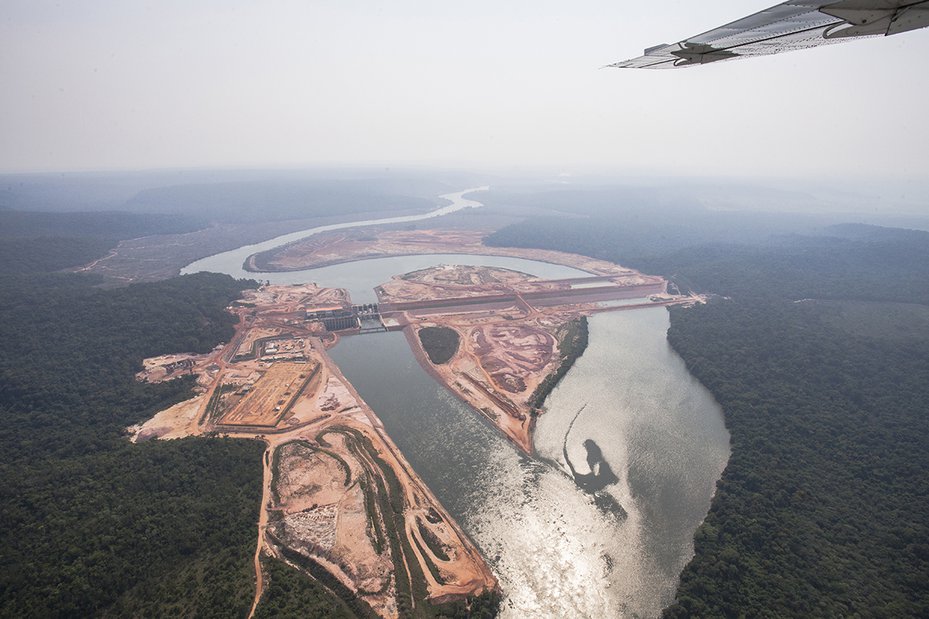
A Dam being built in the Teles Pires river. Greenpeace
The Amazon is home to some 300
indigenous groups including 80 groups of “uncontacted peoples”, who have had
limited contact with the outside world. Just a few hundred Kayabí people still live
along the Teles Pires river’s banks in Mato Grosso and Pará states, on a
protected corridor of land meant to preserve a slice of history and stem
agricultural expansion into the Amazon.
The latest threat to this
endangered Kayabí community’s land appears to be an asset manager headquartered
in Toronto nearly 4,000 miles away. Until January 2022, Brookfield Brazil was
the direct owner of Agropecuaria Vale do Ximari (Ximari), a farming company
that claimed it bought the rights to cattle farming, mining and timber logging
on the land in 1998, incorporation documents show. Under Brazil’s Constitution
and the 1973 Law for the Protection of Indigenous Peoples, lands on which
indigenous people have historically lived and which are in the process of being
certified cannot be sold.
The Kayabí have lived in fear of eviction since
Ximari obtained an injunction ordering police to clear all inhabitants from
75,000ha of land in 2018. The indigenous community living on this farm –
understood to be made up of at least six families and eight children – use the
charcoal-rich land to farm nut, corn and cassava varieties as well as hunting
its wild pigs, tapirs and the occasional jaguar.
All over Brazil, faraway foreign investors are pressuring indigenous groups to leave the land their ancestors have occupied for hundreds if not thousands of years.
Frederico Oliveira, an associate professor of anthropology at Canada’s Lakehead University who has previously spent four years researching the Kayabí.
While these investors may see the Amazon as a way to extract resources and generate wealth, land grabs strip indigenous groups of their constitutional rights to places they consider sacred, where their ancestors are buried and where they hope to bring up their children.
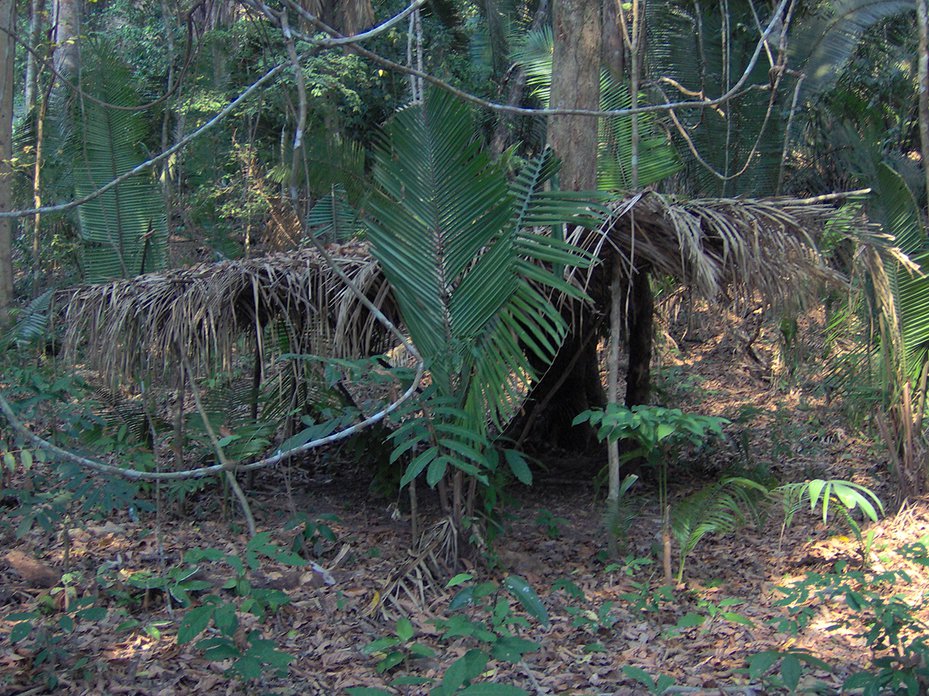
Kayabi hunting lodge near Lake Jabuti. Dr Oliveira
The decades-long conflict over
land between the Brookfield-owned farm and the Kayabí indigenous community has
unfolded on land containing rare biodiversity, in the world’s largest
rainforest. Scientists published in the Nature Climate Change journal in
2022 wrote that the destruction of the Amazon could have “profound implications
for biodiversity, carbon storage and climate change at a global scale”. Forest
loss in the Amazon in 2022 has risen to its worst rate for 15 years, according
to Brazil’s national space research institute INPE. Scientists have warned the biome could soon
reach a tipping point where it stops being able to sustain attacks and its
trees start dying en masse.
Implementing the eviction order
and removing the Kayabí could set a dangerous legal precedent, paving the way
for more mining projects backed by international asset managers on previously
protected Amazon land.
Living with the threat of eviction
A bloody river battle would take
place if the police executed the court injunction to clear two Kayabí villages,
according to a letter from an operational commander in the Mato Grosso military
police force, Abel Rodrigues Pereira, to his superior in June 2018, obtained by us. The villages are on just 40ha of land overlooking the Teles
Pires, located a car and boat journey of more than 100km from the nearest town
of Apiacas, along roads and treacherous rapids. The Kayabí community living
there has in the past told justice officials that it had no intention of
leaving. Indigenous villages dotted around the river could be inclined to show
solidarity, the letter said.
Two dozen police officers, six
four-by-four cars, five boats, a garrison of firefighters and aerial back-up in
the form of a helicopter would be required over seven days for the eviction
operation. Female medical staff would need to accompany the battle squad in
anticipation of injury of indigenous women who they said were particularly
likely to fight back.
Mato Grosso’s state military
police have refused to clear the land of people, citing lack of capacity and
reputational risk, and asked the federal police to do so instead. The eviction
order was still pending after the sale of the farm four years later in May
2022, despite repeated pleas from Ximari for it to be enforced.
Ancient land rights
The Kayabí’s presence along the
Teles Pires river has been carefully documented since the early 20th
century through interviews by anthropologists. Research commissioned by the
Brazilian government body for the protection of indigenous rights, FUNAI,
confirmed this.
Large scale deforestation of the
Amazon started with the construction of a Brasilia to Belem highway in 1960,
linking Brazil’s new capital to the resource-rich interior. Xingu National Park
was created in 1961 in an effort to preserve indigenous people’s way of life.
But the park was soon used as a pretext for a mass eviction effort by loggers,
ranchers, rubber tappers and miners moving deeper into the rainforest. Gold
miners on land claimed by Ximari put the Kayabí under increasing pressure to
leave their homes and arranged for two flights to transfer hundreds of
indigenous people out of the forests.
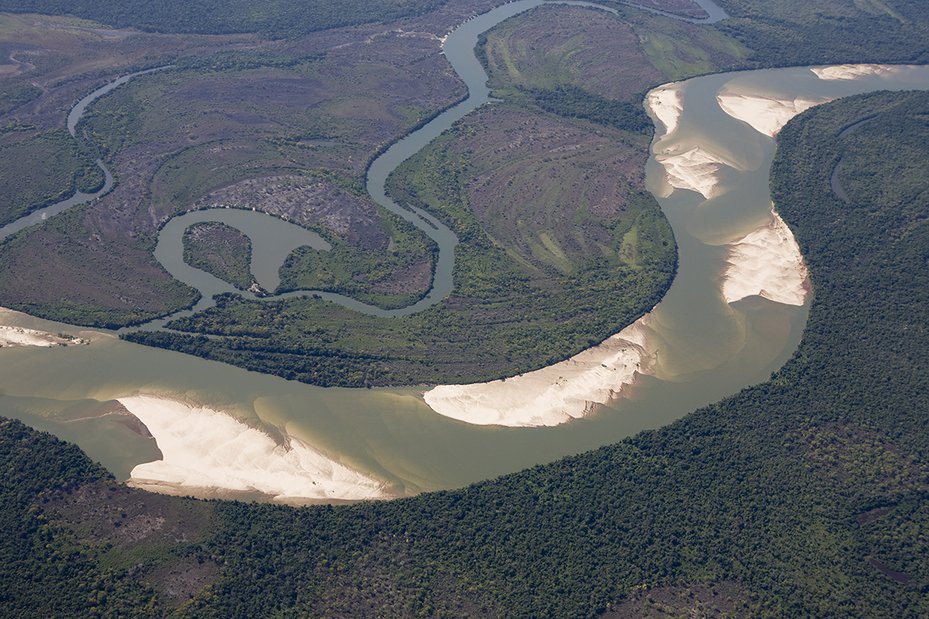
A view from above of the Parque Nacional do Xingu. Greenpeace
The families now living on land claimed
by Ximari say they are descended from more than a dozen Kayabí who went into
hiding in the forest for two months in the late 1960s after resisting attempts
to move them 300 miles from their home. Within a year they were joined by relatives
who made the eight-month journey back to Teles Pires from the national park on
foot.
Despite this the Mato Grosso
state land agency Intermat sold off vast swathes of land in the area in the
1970s and 1980s, in lots of 3,000ha of what it judged to be “empty land”. From 2006, federal prosecutors advised the
remaining Kayabí to occupy the areas they and their ancestors had previously
lived on so as not to lose their land rights.
Villages and agricultural spaces were set up
including on land claimed by Ximari, including a village called Aldeaia
Dinossauro from 2002 onward, and another called Aldeia Ximari. Dinossauro’s
founder told anthropologist Francisco Stucci the village had been built on the
site of his grandfather’s village. Only 2,100 people speak the Kayabí language
throughout Brazil, according to the Joshua Project, a Christian missionary
group, while only a few hundred are thought to live along the Teles Pires
river.
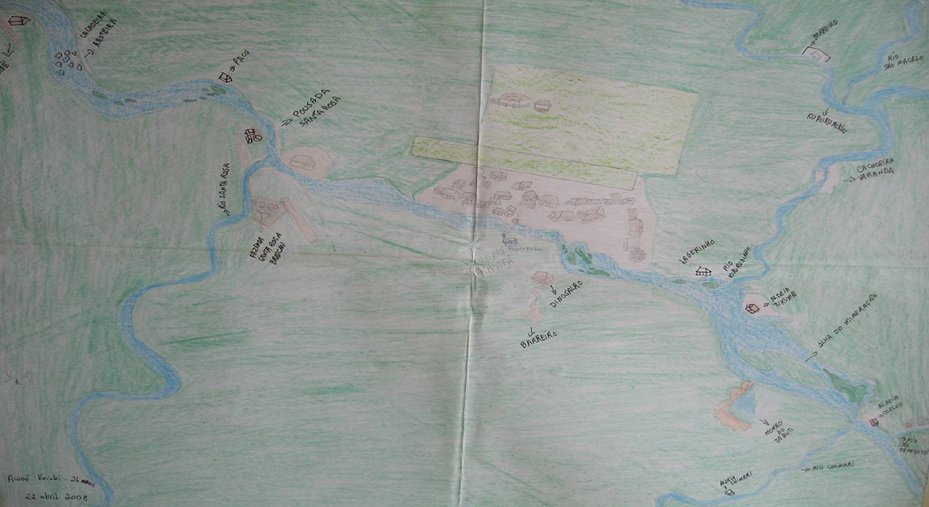
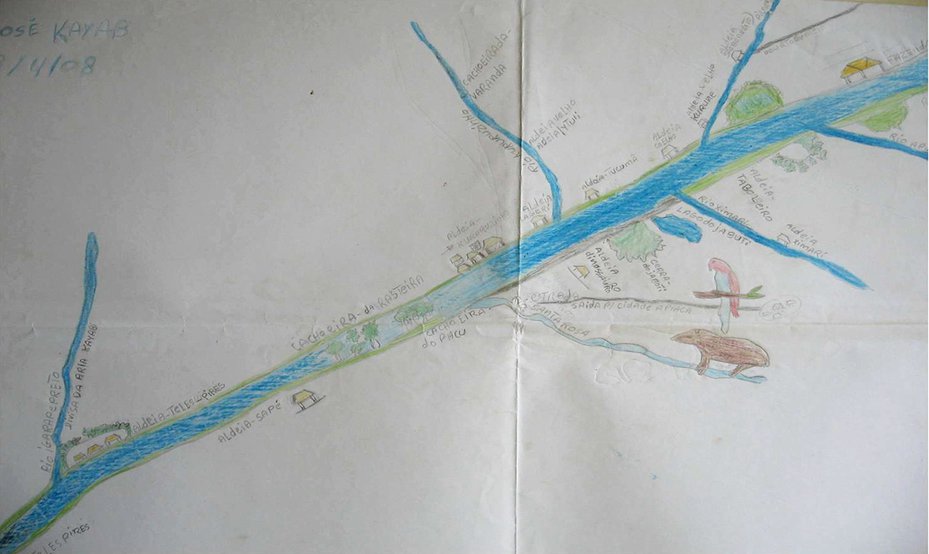
Hand-drawn maps sketched from memory by Kayabí people living on the Teles Pires, showing the location of Dinossauro village and the farm “Aldeia Ximari”. Dr Oliveira
Sacred spaces
The conflict with Ximari centred
on the sacred Lake Jabuti or ypi 'aweté, true lake, in Kayabí language. Locals
we interviewed said that Ximari employees visited the lake in
March 2022. They believe this was to
assess limestone mining deposits. The lake is on land known as the most
charcoal-rich and fertile, and the best hunting ground for wild pigs. Kayabí
elders are buried around the lake and a shaman, or spirit, is thought to live
in one of its caves.
“When I arrived here, it felt
like I was daydreaming,” a Kayabí man born in Xingu told the anthropologist Dr
Oliveira about the lake. “That’s the kind of place it is, very famous and very
sacred to us, because a lot of the things we respect are there.” He had grown
up hearing stories about Lake Jabuti from his grandfather and had returned to
the Teles Pires area at his request.
Both the identity of the Kayabí and their food
security is intrinsically tied to their close agricultural and spiritual
relationship with the land around the Teles Pires river, the anthropologist
argued. Youngsters are taught that when a kutap frog starts singing by the
river it is time to start sowing local varieties of banana, watermelon, corn or
manioc.
No species is more prized than the nut tree, which is highly
concentrated around Dinossauro and Jabuti but absent in Xingu, where some
Kayabí were forced to move. Nut milk is used to cook game, fish or porridge, or
as a hair dye. The nut tree’s lifecycle is used to mark the passage of time.
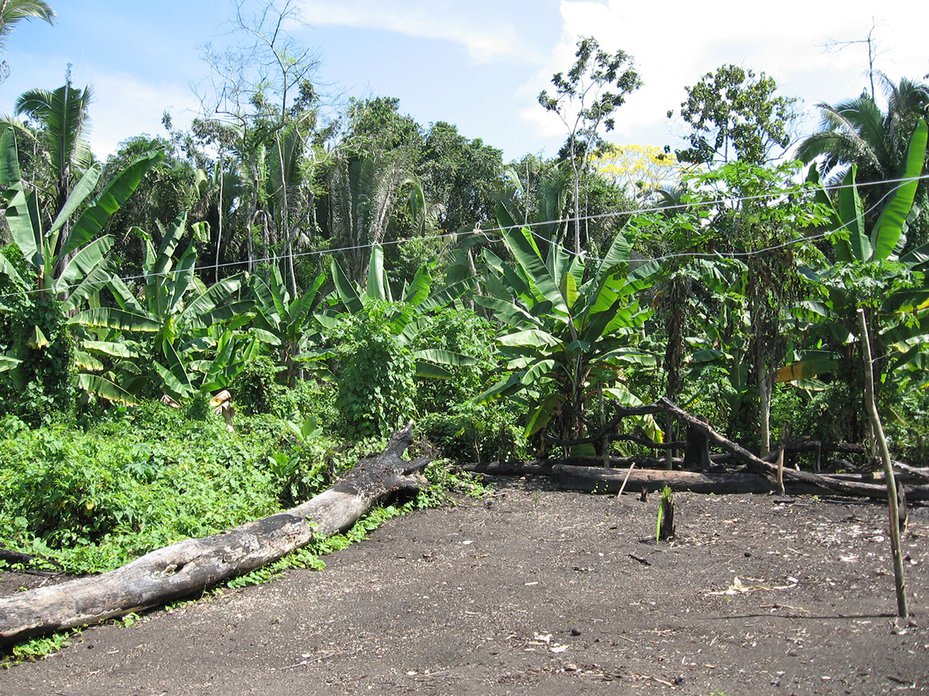
Clearing in Dinossauro village, with charcoal-rich “black earth” common to the Amazon basin. Dr Oliveira
National attacks
Indigenous people’s rights to
their ancestral land were enshrined in Brazil’s 1988 Constitution but are under
threat all over Brazil ahead of President Bolsonaro’s re-election bid in
October 2022.
A new constitutional
interpretation put forward by agricultural groups would require indigenous
people to prove they physically occupied contested land in 1988, at a time when
many groups had already been dispossessed and displaced. In June 2022 a Supreme
Court ruling on the case could set a precedent affecting ongoing land
demarcation cases for some 197,000 indigenous people occupying 11 million
hectares of land, including the Kayabí.
Bolsonaro is trying to rush a
series of laws through Congress which would put the Amazon and its inhabitants
more at risk than ever. Known as the
“destruction package”, the laws would give a wholesale green light to hundreds
of mining, logging, cattle and energy projects by removing protections for
indigenous people and their forest land.
Around 160,000km2 of Amazon
rainforest would eventually be swallowed up by mining projects if these laws
were to be successfully passed, according to the NGO Amazon Watch. It found
2,500 active mining applications overlapping indigenous land in November 2021,
covering an area nearly the size of England. Asset managers Capital Group,
BlackRock and Vanguard gave more than $14 billion in financial backing to the
mining groups who filed the licence applications noted by Amazon Watch.
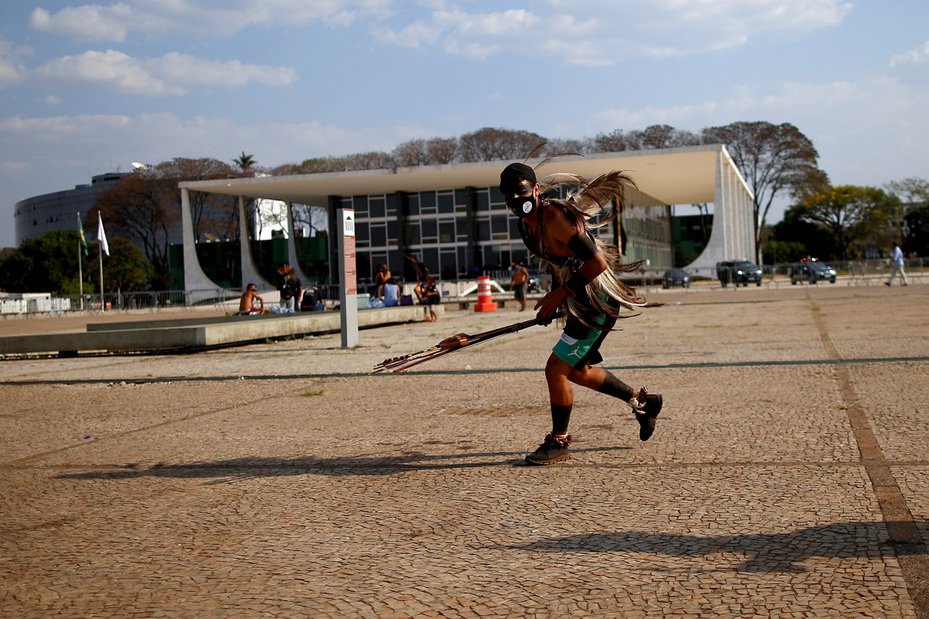
An indigenous person takes part in a protest on the day of Brazil's Supreme Court trial of a landmark case on indigenous land rights in Brasilia, 15 September 2021. REUTERS/Adriano Machado
Overlapping legal attacks
The land claimed by Ximari was part
of a vast land area belonging to Kayabí communities, first established by
presidential decree in 1982. In 1999, after an anthropological survey showing
the Kayabí had historically been present there, alongside two other indigenous
communities, FUNAI stated that the borders of the area included both land in Pará
state and in Mato Grosso state, including the area claimed by the Ximari farm.
Despite this, the farm has
launched several parallel legal cases against the Kayabí for possession of the
land. Ximari’s attempts to annul indigenous claims to the land based on having
owned it since the 1980s was rejected in 2011 as both the court and FUNAI
considered the indigenous community’s rights pre-existent. Ximari appealed the
decision.
The Kayabí’s land borders were officially
registered by President Dilma Rousseff in April 2013, spreading across 1.05
million ha of land. Mato Grosso’s state government sought to annul Rousseff’s
land registration just seven months later, arguing the Kayabí did not live on
the full stretch of land attributed to them. Federal prosecutors and the
government’s indigenous administration body, FUNAI, both argue the land has
been historically occupied and owned by indigenous people.
Ximari launched a new
repossession case for the same land area in the federal court of Sinop in 2015,
arguing the Kayabí had used Rousseff’s contested decree as justification for an
“illegal invasion” onto the farm. The case was initially dismissed for being
too similar to a previous one the farm had unsuccessfully filed in 2007. After
an appeal, judge Kassio Nunes granted Ximari an injunction in a federal court
to remove the Kayabí people.
Judge Nunes has since been named
as one of Bolsonaro’s two appointees to Brazil’s 11-member Supreme Court and
has voted in favour of reinterpreting the Constitution’s indigenous rights
provisions.
Mato Grosso’s injunction to reverse the
registration process of the indigenous land was still under appeal by FUNAI and
by the federal government in May 2022. A conciliation process between the
indigenous community and the state had been postponed due to the pandemic.
Mining potential
Brazil’s national environmental
watchdog Ibama accused Ximari of carrying out illegal deforestation on small
patches of its land in 2019. The farm denied this in court filings and said the
deforestation had been carried out by the indigenous inhabitants themselves. Around
half of the farm was made up of legally protected land which cannot be
deforested, according to its registration documents.
Previous Ibama research has shown
more than 30,000ha of forest was deforested between 1995 and 2005 in the Mato
Grosso part of the Kayabí’s indigenous territory. A Birkbeck University thesis
on deforestation in the area based on satellite data analysis argues farmers
were responsible for this.
One reason Ximari may have been
interested in the land is mineral extraction. A man understood to manage Ximari’s
farm was listed as director of a local mining firm specialising in precious and
semi-precious gems, according to unofficial corporate data.
“It is the land that will guarantee our
culture,” a Kayabí leader was reported to have explained at a Supreme Court
hearing about the suspension of Rousseff’s demarcation case in 2014. “The river
is our market, the forest too. If we don’t have land, we’ll become
beggars.” In a letter delivered at the
hearing, another leader explained that Kayabí people’s absence from these lands
was caused by “deferred expulsion, maliciously devised”. He wrote: “Perhaps there were no Indians on
those lands in 1988, but there was certainly the memory of our ancestors”.
Farm sale
Court documents show the farm was
prohibited from being sold and was held as collateral by an Apiacas court in
August 2021 due to some unresolved issues described as “Tax Enforcement,
Enforcement Proceedings, Civil and Labour Proceedings”.
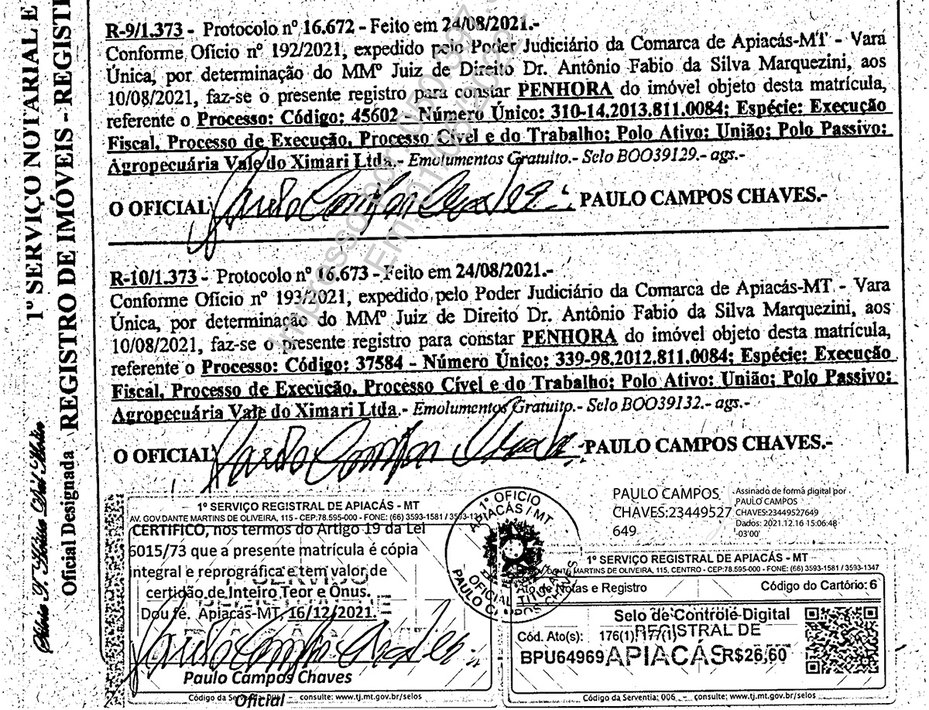
Extract from registration document, signed December 2021
Despite this Brookfield sold the
farm’s holding company Agropecuaria Vale do Ximari to an investor in January
2022, according to an update to the firm’s articles of incorporation in May
2022. Rio Tocantins Participações, a
Brazilian company, bought the business for R$12,983,954 (£2.16 million). The buyer filed documents to the Supreme Court
in May 2022 explaining it was aware the farm was within land demarcated for the
Kayabi indigenous group and wished to register an interest in the ongoing
dispute over the demarcated territory between the state of Mato Grosso and the
Federal government.
Brookfield said it “unequivocally refute[s] the
specific allegations of human rights abuses towards indigenous tribes” claiming
that these were “baseless allegations”. When pressed for evidence to
substantiate why it thought these claims were “baseless”, Brookfield did not
reply.
Brookfield Brasil, formerly known
as Brascan, has been linked to a whole host of other environmental and social
harms.
Newspaper reports from 1989
suggest the group has a long history of facing deforestation allegations. That
year a tin mine it jointly owned with British Petroleum was accused of
destroying at least 40% of the Jamari National Forest in Rondônia.
A World Bank report calculated
the mine had “affected” 90,000 hectares of this rainforest in western Brazil
due to mining, road clearance, soil dumping or river diversion, according to an
Ottawa citizen report. The Brazilian forestry service put this at 100,000
hectares, though Brascan told the newspaper the mine had not damaged more than
25,000 acres (10,117 hectares).
An undercover Sunday Times
reporter who was sent from London to visit the mine at the time wrote: “Inside
the security cordon, verdant-Amazonian rainforest is rapidly being transformed
into a moonscape of cratered, open-cast mines. Signs of dying forest are
everywhere (..) Not even scrubs grow, and no attempt has been made to repair
the damage by replacing topsoil and replanting.” Brascan said it had not
undertaken any reforestation work – and nor was it planning to.
Brookfield Brasil’s current-day energy projects
in Brazil also face a host of governance and environmental issues. A leak at a
hydroelectric dam owned by the asset manager’s Brasil branch may have been
behind floods that devastated the eastern city of Raul Soares in January 2020,
according to an
investigation by the Organised Crime and
Corruption Reporting Project (OCCRP). The floods impacted 800 homes and left at
least 3,000 people homeless, according to February 2020 filings by a lawyer at
a public hearing.
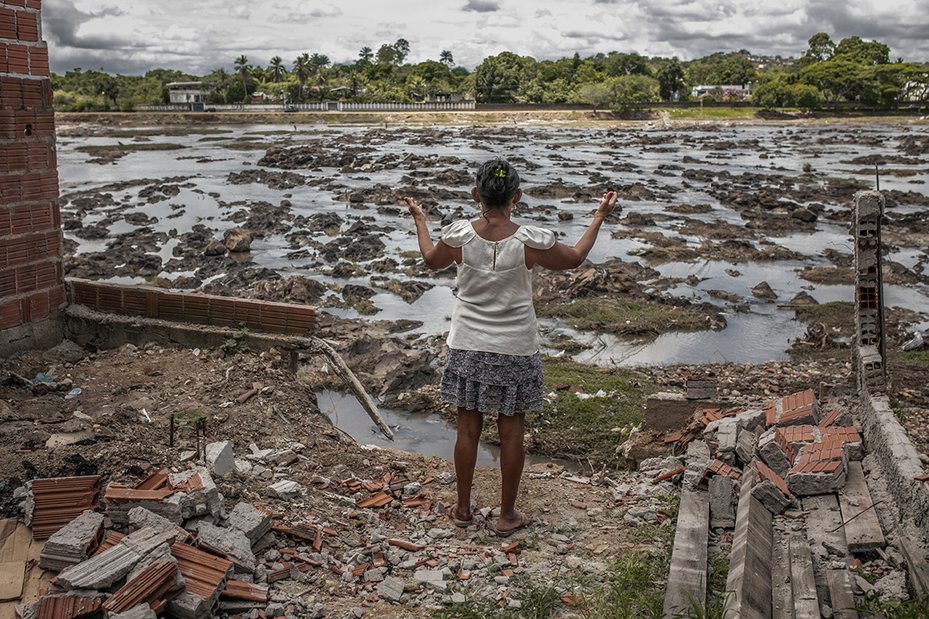
The states of Bahia and Minas Gerais, in the northeast region of Brazil, suffer from floods that began in November 2021 and continue to wreak havoc in early 2022. Isis Medeiros / Greenpeace
The João Camilo Pena plant in
Minas Gerais state had been operating for more than a decade without an environmental
licence, according to the state prosecutor’s office. The company failed to
alert authorities in the city so people at risk from floodwater could be
evacuated, according to a technical report commissioned by the prosecutors. Brookfield denied responsibility for the
disaster, saying the plant was too small to have an impact on floods. The asset
manager said it was in the process of obtaining an environmental licence for
the plant.
The OCCRP has reported that
residents say they have been harassed by Brookfield employees for speaking out
about the impact of another Brookfield plant on their livelihood, the Barra do
Brauna Hydroelectric Power Plant. One protester says he and his wife received
death threats from Brookfield employees. State police opened two probes in
January and August 2019 into these alleged threats, according to files seen by us.
Brookfield’s subsidiary Elera
Renováveis said the protester had sued the company to obtain “an undue
financial advantage” after his compensation claim was rejected, and that he had
harassed company employees.
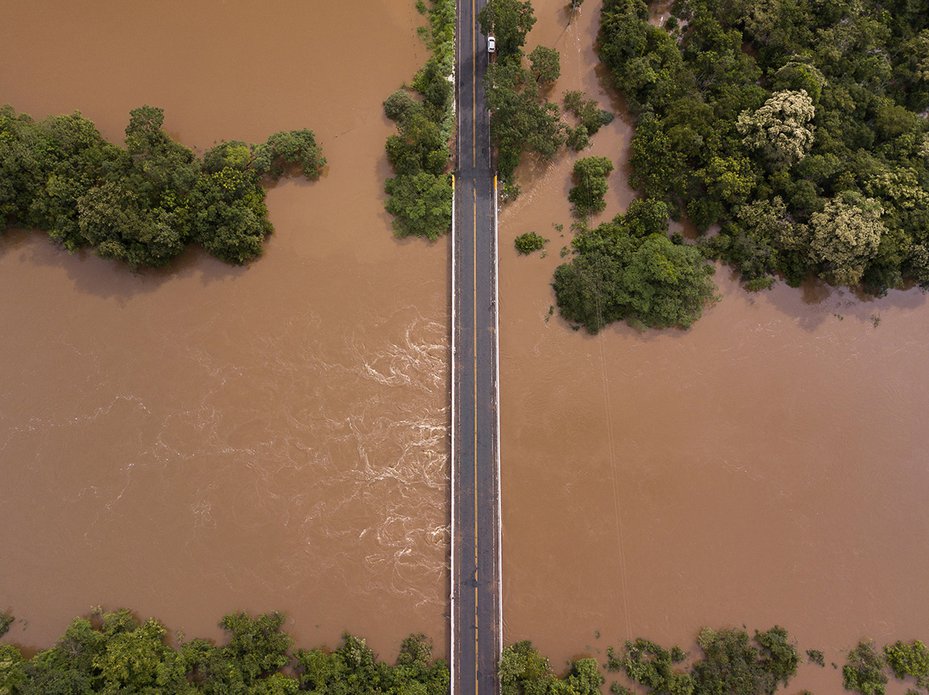
View of a bridge almost consumed by flood water on the border of the municipalities of Diamantina and Olhos DAgua in Minas Gerais state, Brazil. NILMAR LAGE/AFP via Getty Images
Elsewhere in Minas Gerais, a
major Brookfield electricity project failed to engage with 10 local
communities’ who have lived in the area for more than seven generations,
according to a letter by community leaders published by the Margarida Alves
human rights collective in 2019. Brookfield has concessions for the operation
and construction of electricity transmission lines worth more than a billion
pounds through its company Quantum.
Quantum’s Mantiqueira electrical
transmission project is building hundreds of towers stretching across a 195km
transmission line known as Janaúba-Araçuaí. Each tower requires 40 square
meters of forest land to be cleared, according to De Olho nos Ruralistas, an
outlet focused on Brazilian land disputes, as well as a security perimeter of a
further 70 square meters in which the company prevents animals or native
“geraizeiros”, traditional farmers, from moving around.
These community and land
conflicts risk exposing Brookfield to breaches of its human rights policy which
states: “Brookfield is committed to conducting its business in an ethical and
responsible manner, including by carrying out our own business activities in a
way that respects and supports the protection of human rights… we embed these
standards in our core business activities.”
Brookfield again said it
“unequivocally refute[s] the specific allegations on flood damage in Minas
Gerais and that they were “baseless”.
It also said that in the “face of a number of
industry-wide issues facing mining operations in Brazil, Brookfield chose to
implement a restoration plan that has been recognized by the Brazilian
environmental agency as one of the most advanced in the country, and has
voluntarily continued with these restoration efforts well beyond our sale of
the assets in 2005.”
The allegations detailed in this report demonstrate
that the financial sector cannot be trusted to police itself to net zero.
Voluntary initiatives such as GFANZ, launched with fanfare, are riven with contradictions
and conflicts of interest.
As UN Special Envoy, climate finance adviser to the
UK government, and co-Chair of GFANZ, Mark Carney has significantly raised the
profile of climate change as a threat to financial stability. But Brookfield’s track
record presents yet another case study of how the financial sector can use
voluntary schemes as a smokescreen for inaction.
This report - with its details of deforestation,
slave labour, and attempts to evict indigenous groups - shows he has made much
less progress on voluntarily delivering good environmental and social
governance under his own corporate roof, despite the organisation’s pledges.
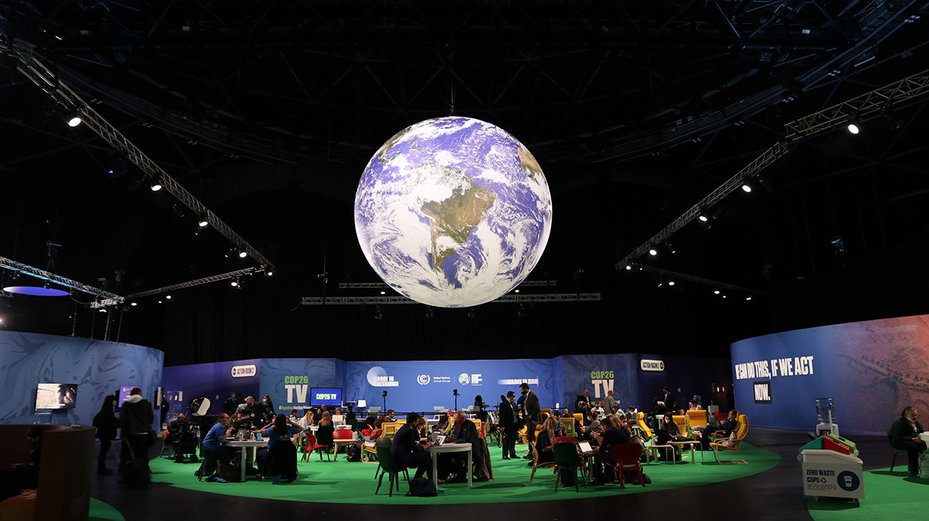
Carney joined
Brookfield in August 2020, at least a year before any of the farms discussed in
this report were sold and nearly two years before its Amazon property was sold.
As tropical deforestation rates rise and the financing of destructive agribusiness continues apace, existing financial regulation and voluntary initiatives such as the Race to Zero and GFANZ have already shown themselves to be woefully insufficient. This is epitomised by GFANZ’s decision to dump mandatory compliance with Race to Zero just weeks before the body’s planned introduction of an independent compliance mechanism.
What is needed now is not further weak voluntary initiatives, but new laws.
Brookfield’s attempts
to distance itself from these farms does not absolve the company of its
culpability. Its own annual reporting suggests it sets out to control the
assets it invests in, stating: “In most cases, we invest in ways that allow us
to have a degree of influence or control over the asset or business, known as
“control positions.” This enables us to bring our experience and influence to
bear, including on ESG matters.”
The route to success is clear: to reach net zero
and ensure a just transition, governments must introduce mandatory
environmental and human rights due diligence for the financial sector. This
would result in no additional regulatory burden, since financial institutions should
already conduct such due diligence if they are genuinely committed to their
voluntary Race to Zero pledge. For all of its structural flaws, even GFANZ
itself has declared the initiative is merely stepping in, "absent government action”.
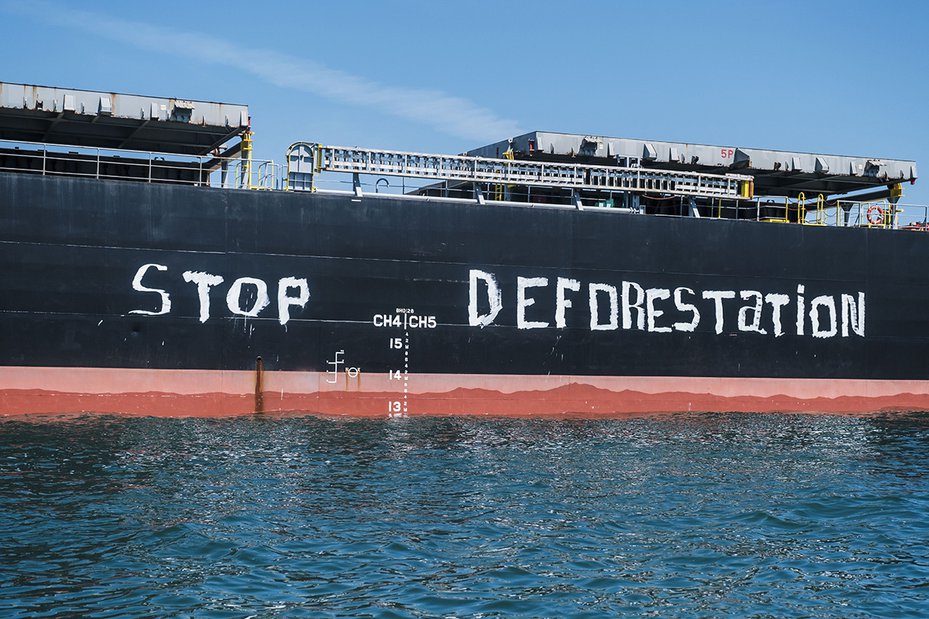
Activists from Greenpeace France welcomed the cargo ship Cabrillo coming from the Cerrado region (Brazil) off the Saint-Nazaire harbour. Simon Lambert / Greenpeace
In light of our findings, governments should:
- Legislate to introduce
mandatory human rights and environmental due diligence for the financial
sector, accompanied by effective monitoring and enforcement mechanisms and a
civil and criminal penalty regime
- More specifically,
introduce rigorous and detailed due diligence standards to accompany this
legislation requiring companies and financial institutions to identify, report
and mitigate the risk of deforestation
-
Ensure measurable and
dated no-deforestation commitments are included in all mandatory net zero
targets and policies, as well as climate disclosure and reporting initiatives
-
Include nature,
biodiversity, land use and deforestation as key topics in transition plan
guidance and templates
-
End the reliance on voluntary
financial sector initiatives that fail to ensure effective accountability for
deforestation and human rights abuses by introducing effective financial
regulation
-
In Brazil, investigate
the abuses outlined in this report and abandon attempts to remove environmental
protection for indigenous communities. Enforce existing indigenous land rights
and existing laws requiring state environmental authorities to publish
deforestation permit data
Brookfield should:
- Provide redress and remedy for indigenous peoples
and communities affected by its agricultural operations, including but not
limited to the return of land rights, the donation of any past profits and an
apology for all historic and contemporary abuses
-
Cease all deforestation activities and restore
deforested land
-
Investigate and report all deforestation and
human rights incidents to the Round Table on Responsible Soy and Brazilian
government
-
Publish a list of farms and agricultural assets
under Brookfield’s direct or indirect control
-
Publish a no-deforestation policy applicable
both to direct investments and managed assets
-
Publicly report against this no deforestation
policy in its transition plan and relevant climate-related disclosures
Race to Zero, GFANZ, and all sub-sector alliances, including the
Net Zero Asset Managers initiative and Net-Zero Banking Alliance should:
- Ensure all new guidance requires all members to comply with international human rights law and Free, Prior and Informed Consent (FPIC)
- Develop and publish a credible and transparent independent mechanism responsible for systematically reviewing performance and compliance with all Race to Zero and GFANZ targets and membership criteria. Such reviews should draw on information provided by civil society, media reporting, available disclosures, shareholder voting records and grievance lists published by businesses under their UN Guiding Principles on Business and Human Rights obligations, among other sources
- Secure input from affected frontline groups, environmental defenders, and indigenous peoples to ensure any new accountability mechanisms function effectively in real-world scenarios and provides legitimate redress and remedy
- Provide an online portal for civil society and other actors to submit evidence and information on the performance of their members
- Eject and publicly name partners and members who fail to reach their targets or comply with such policies